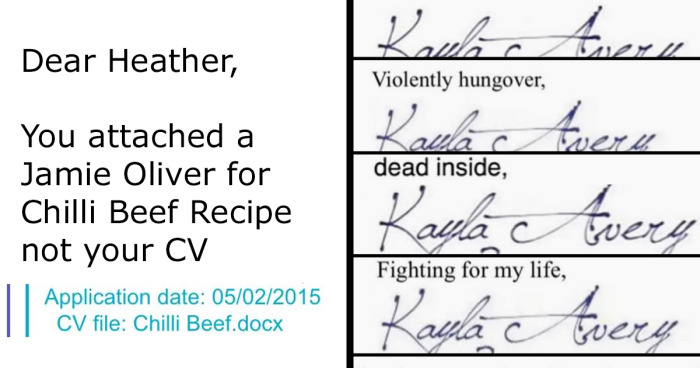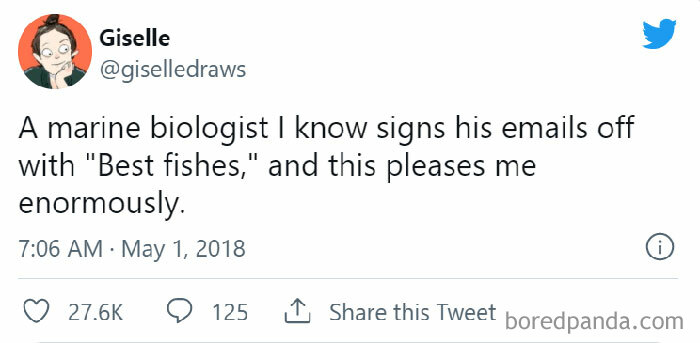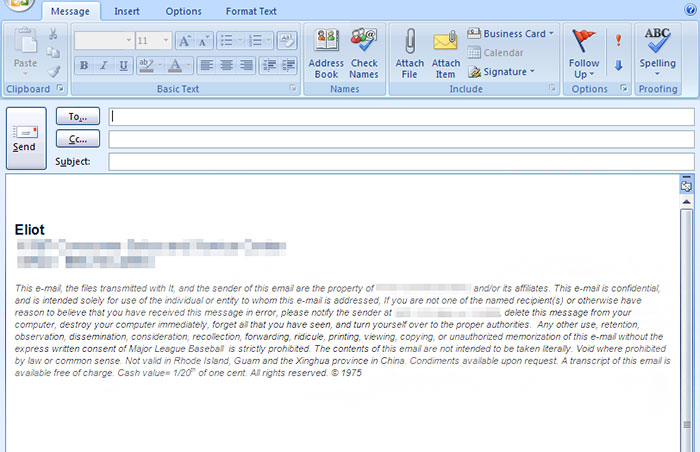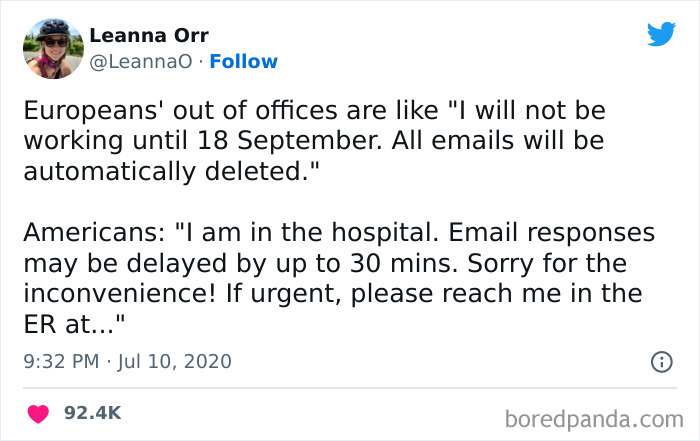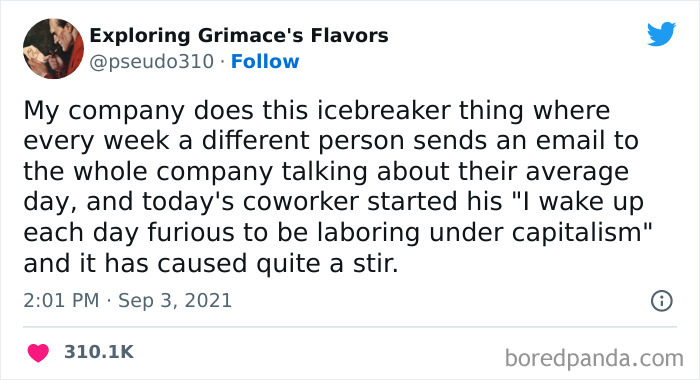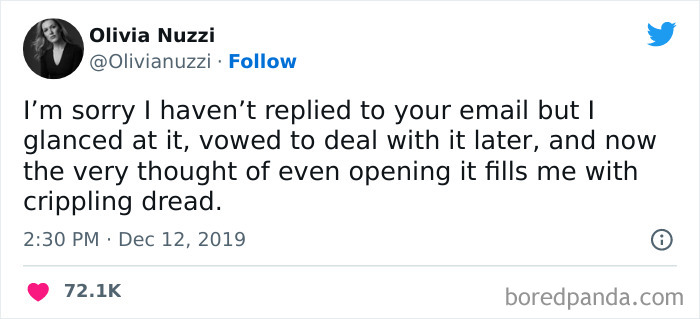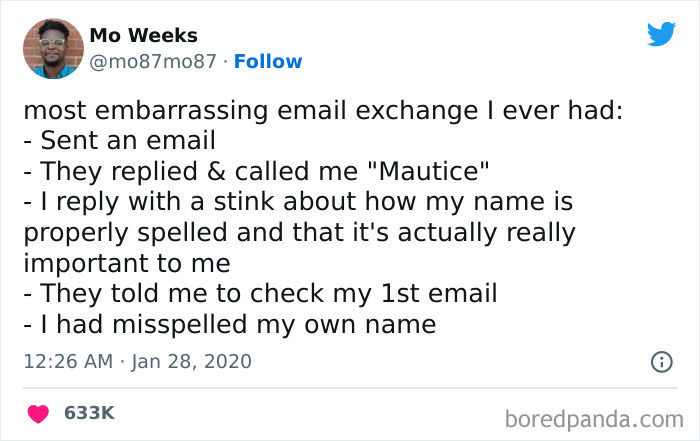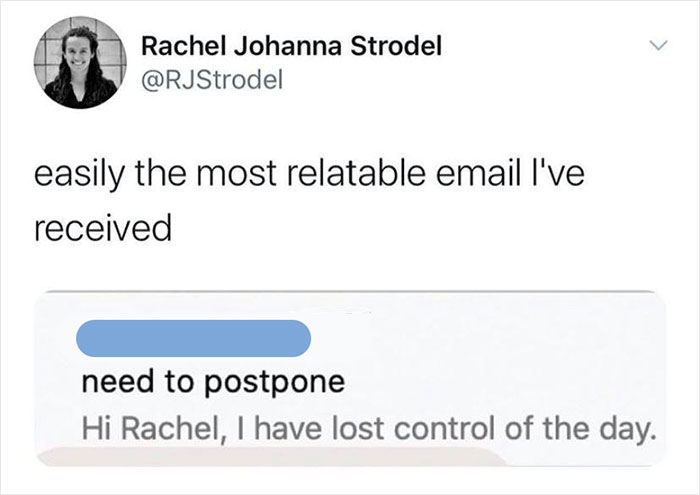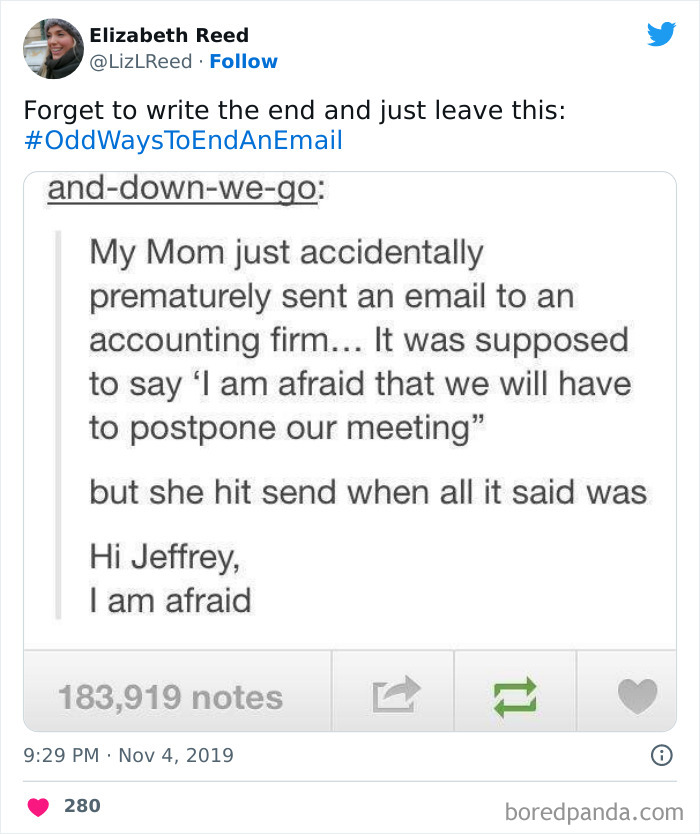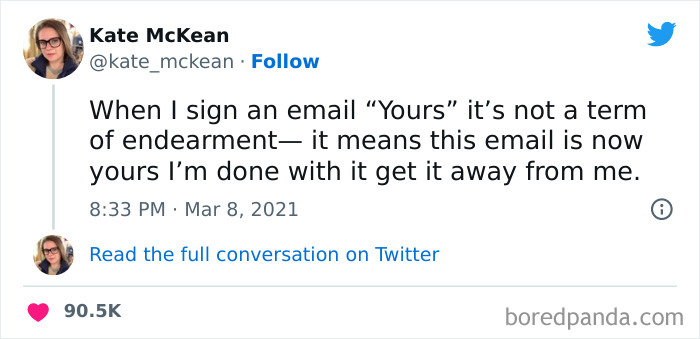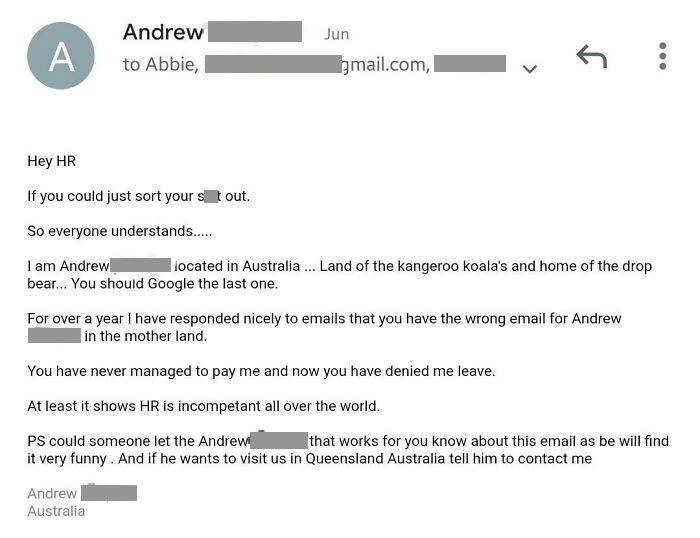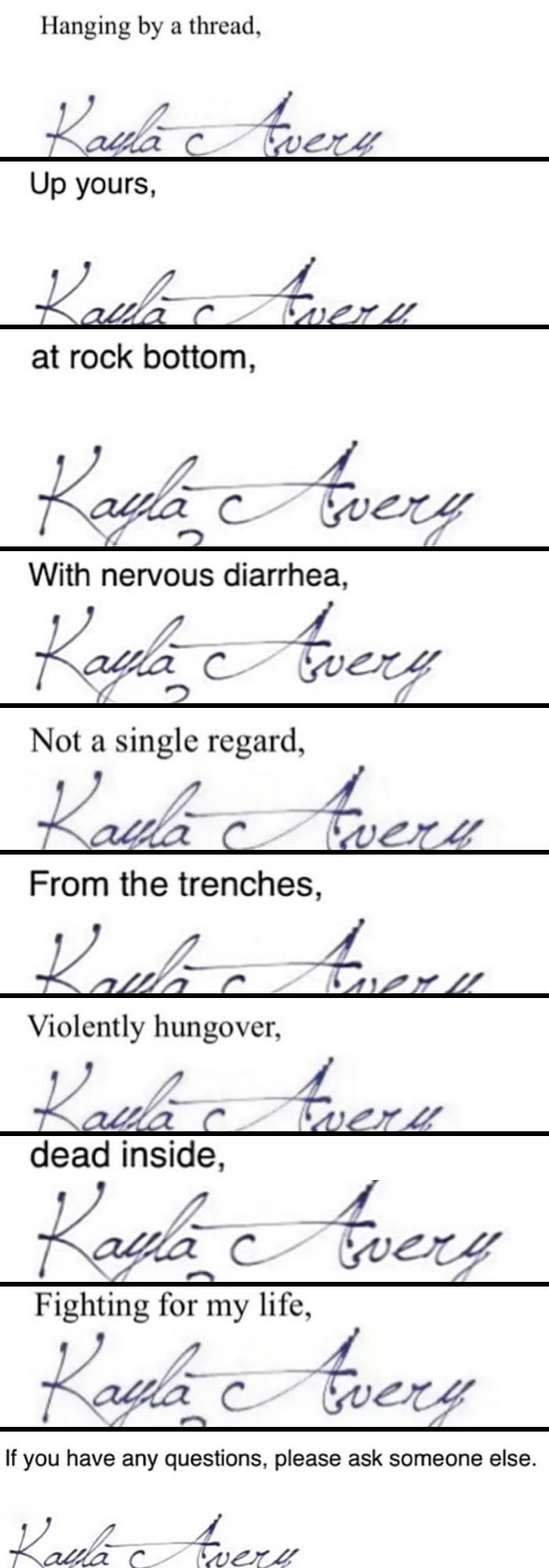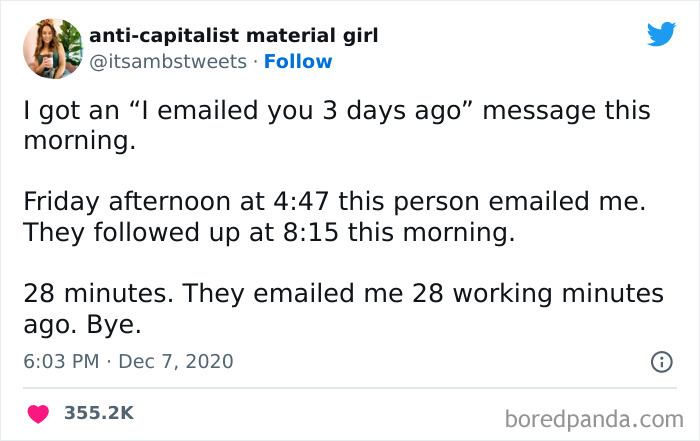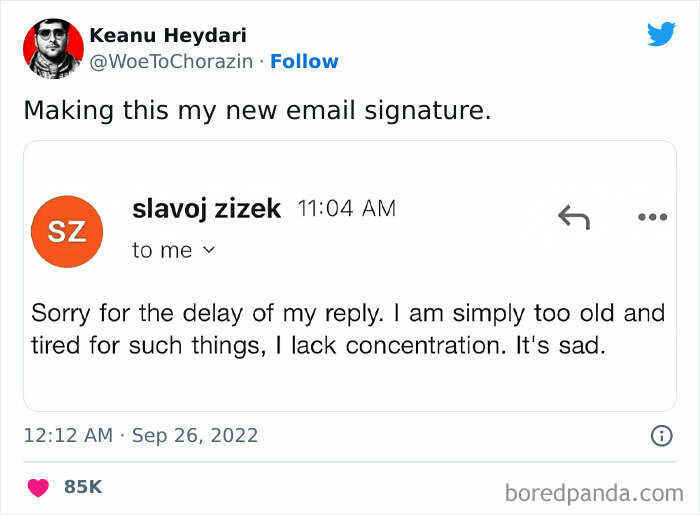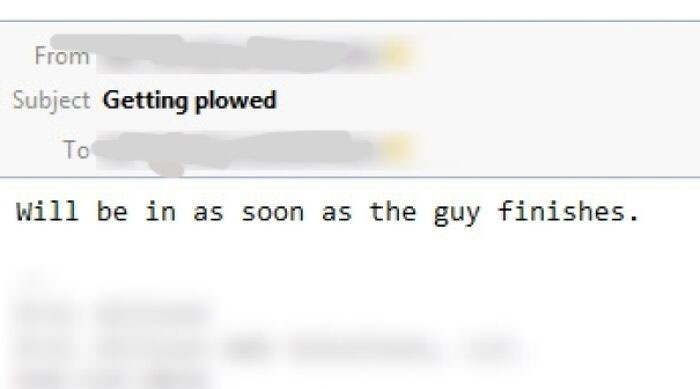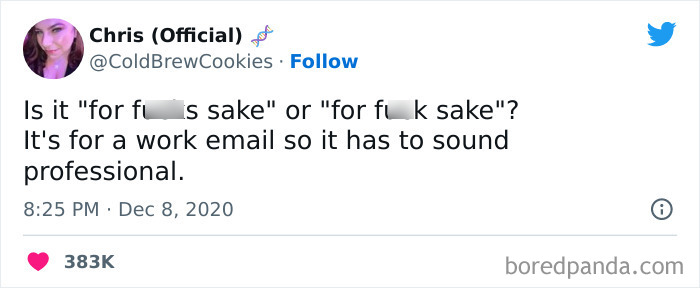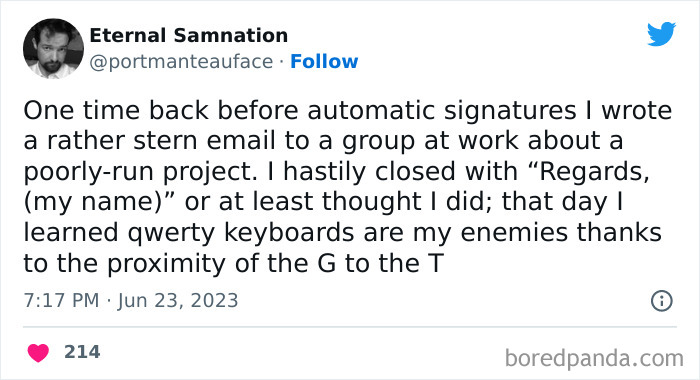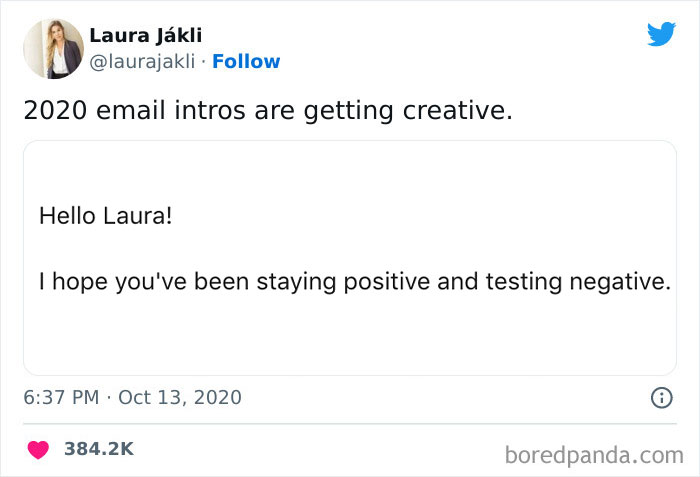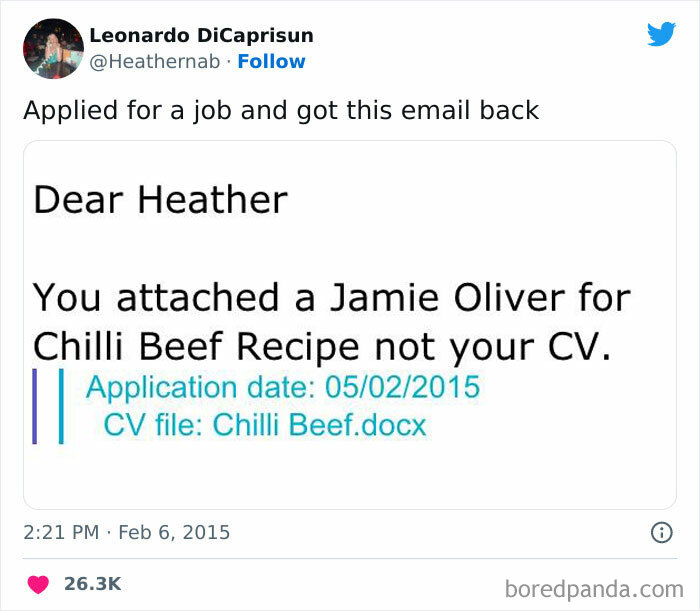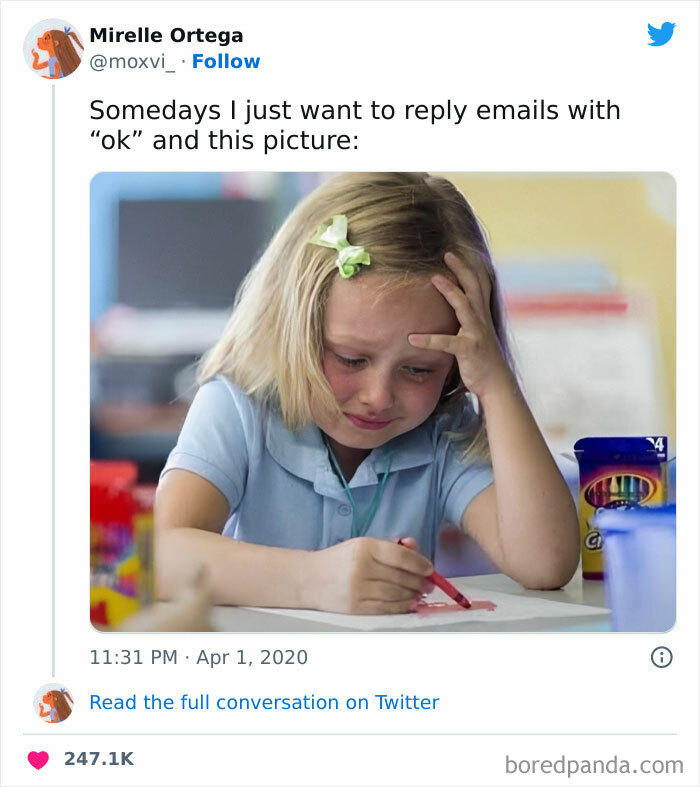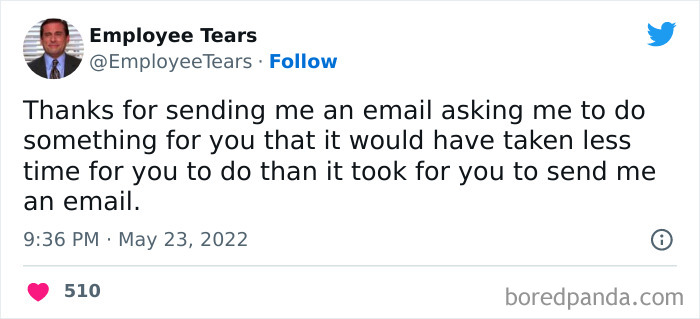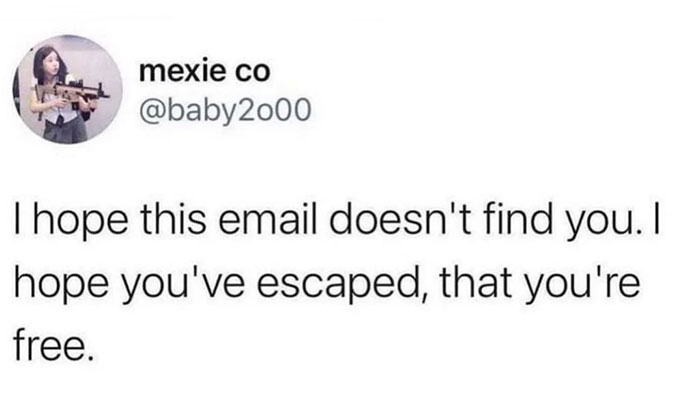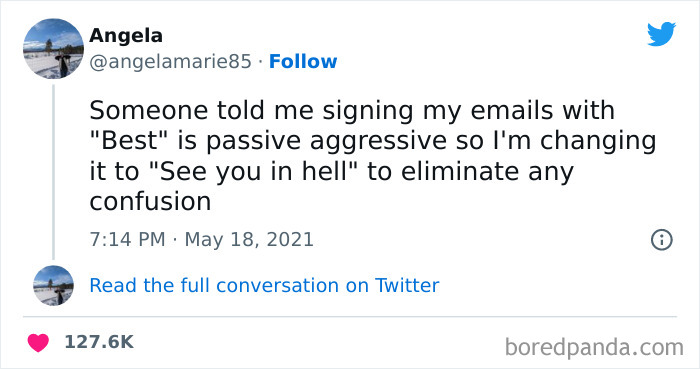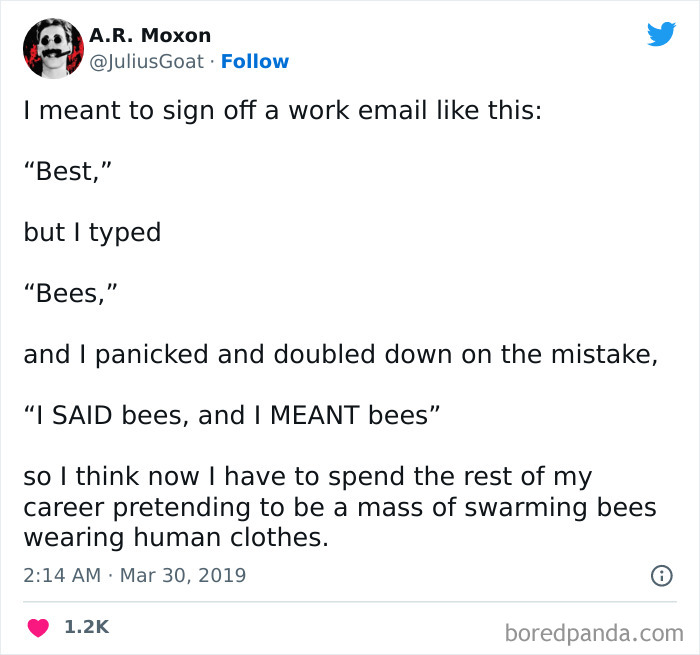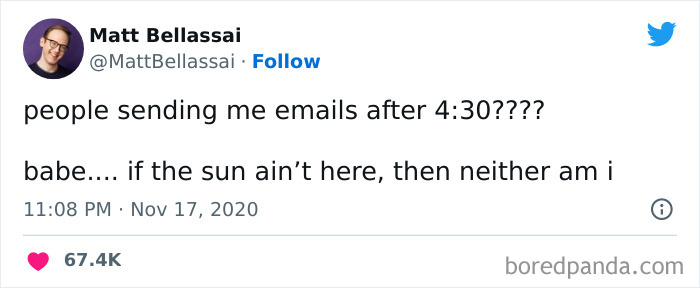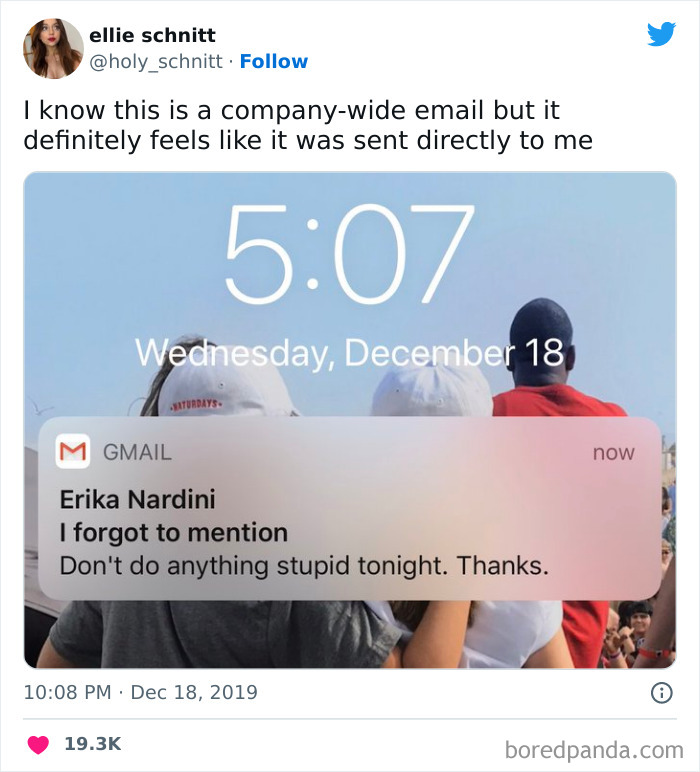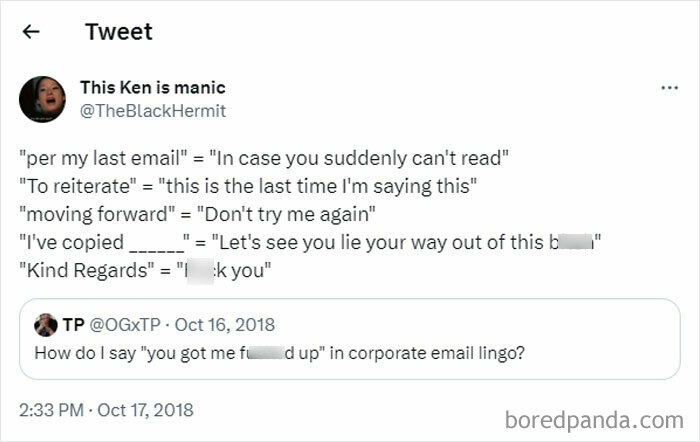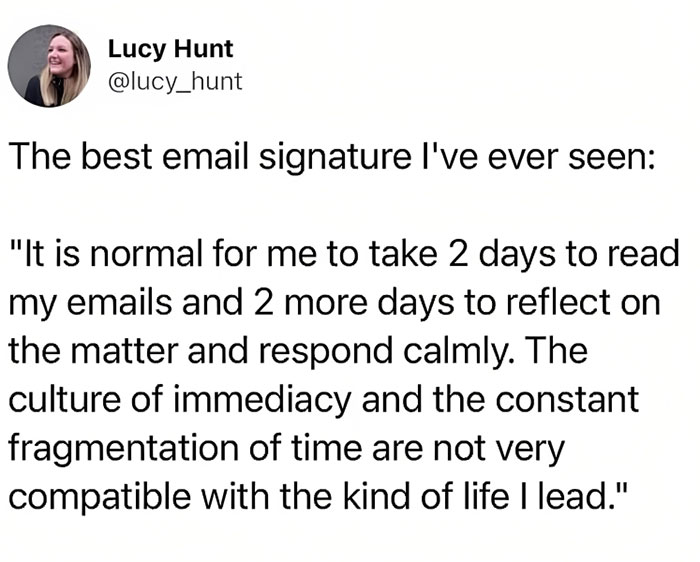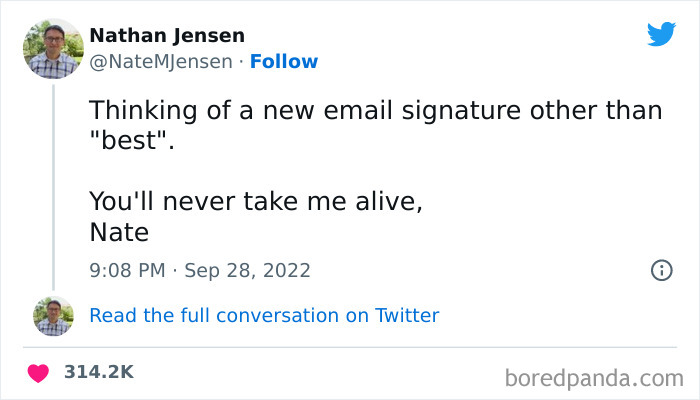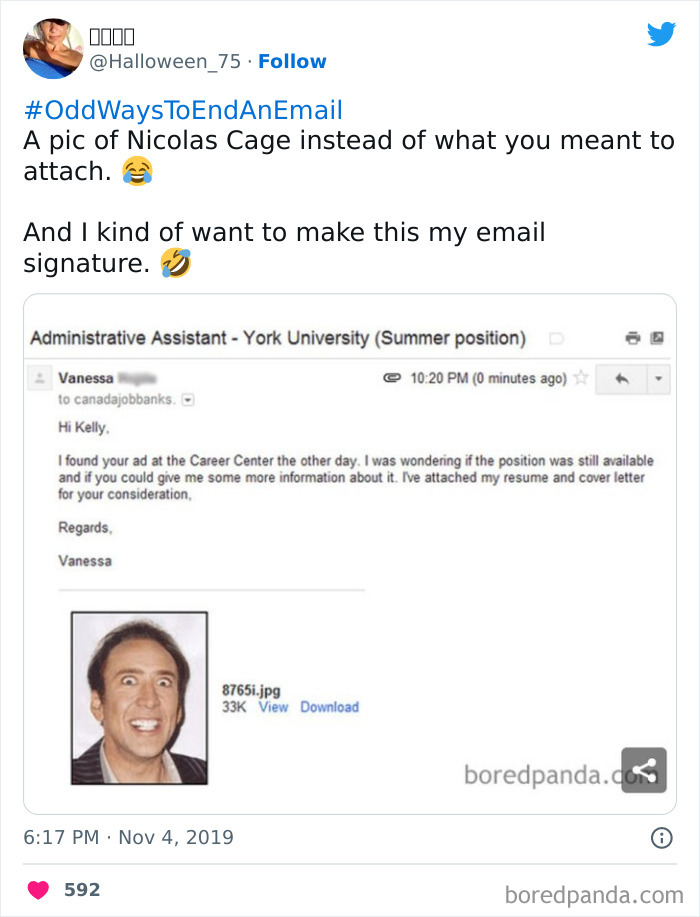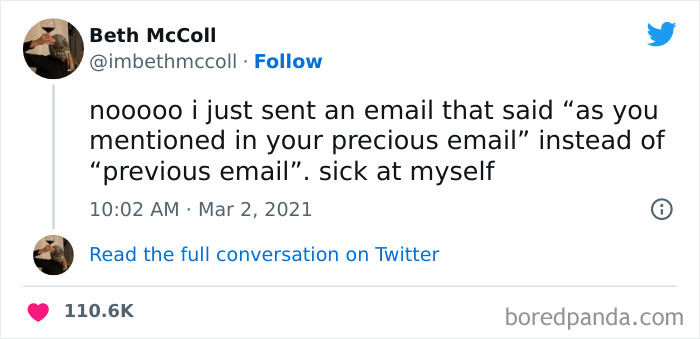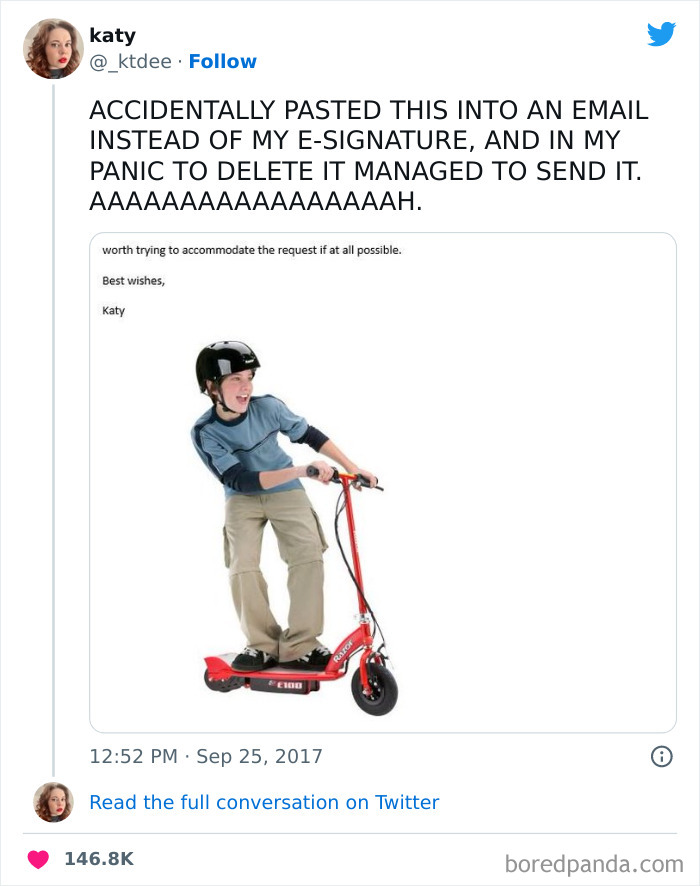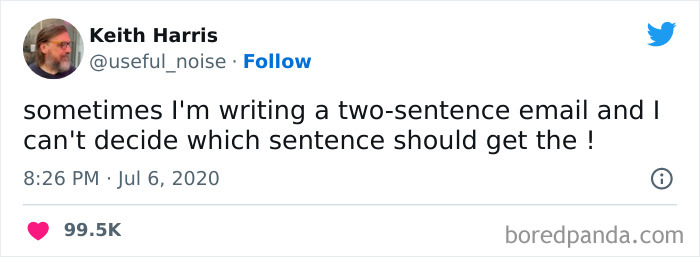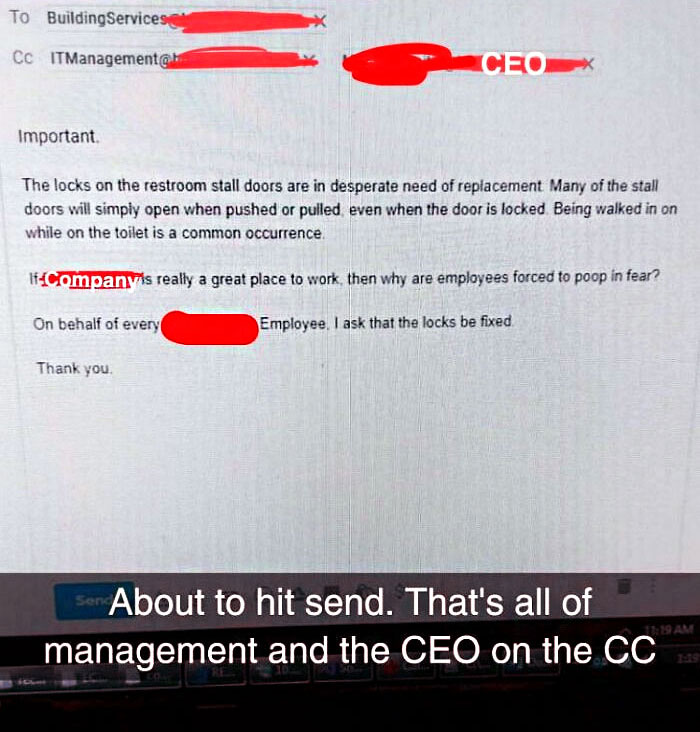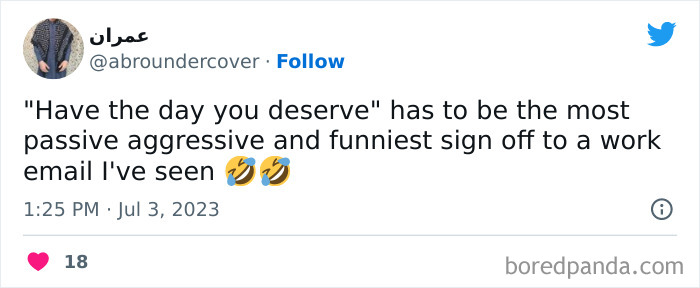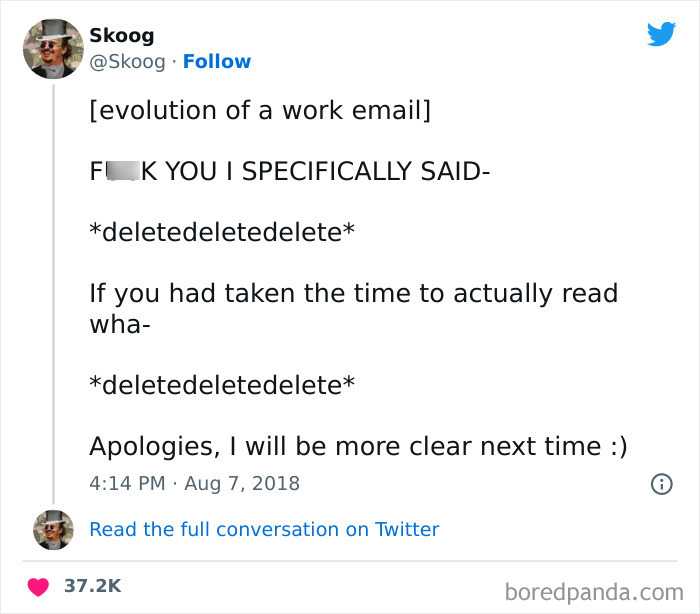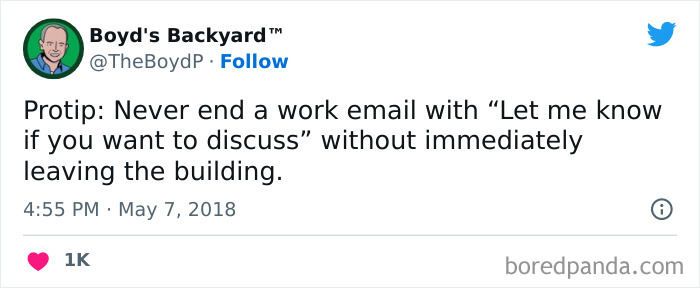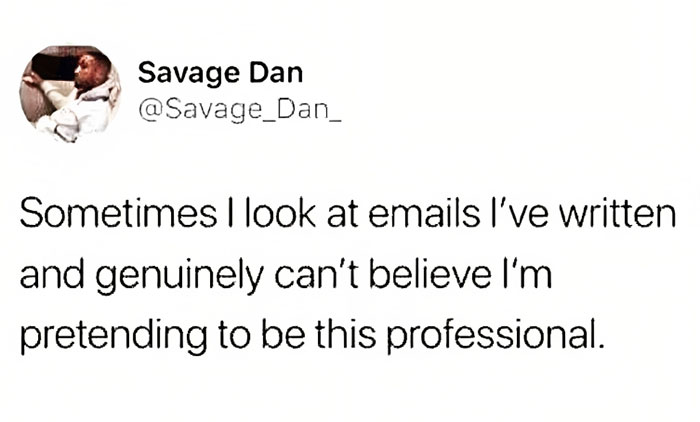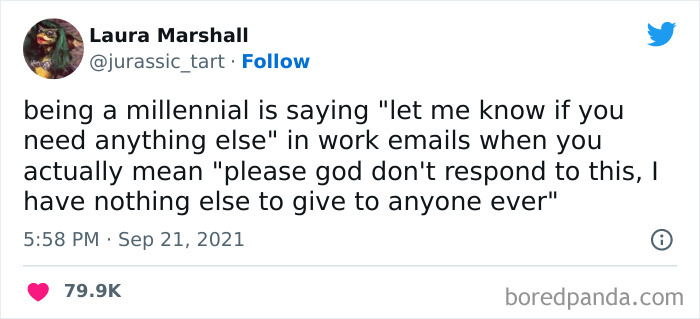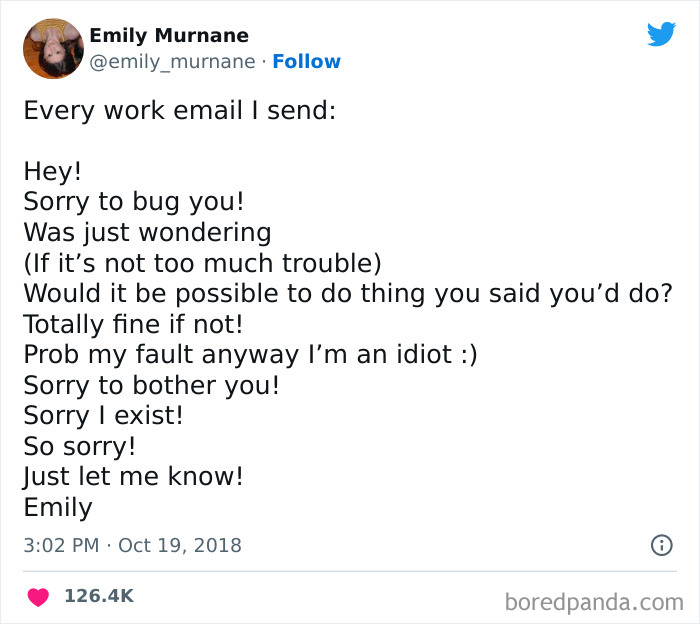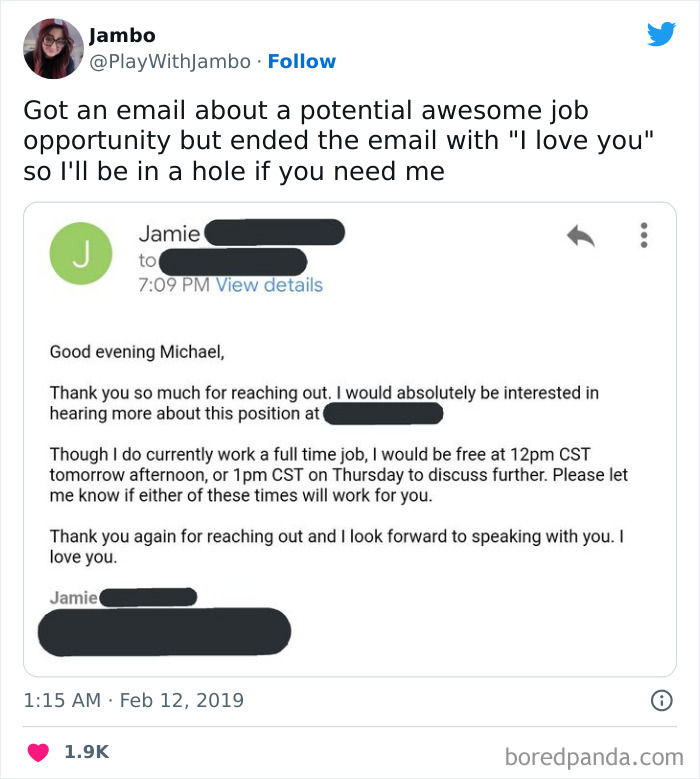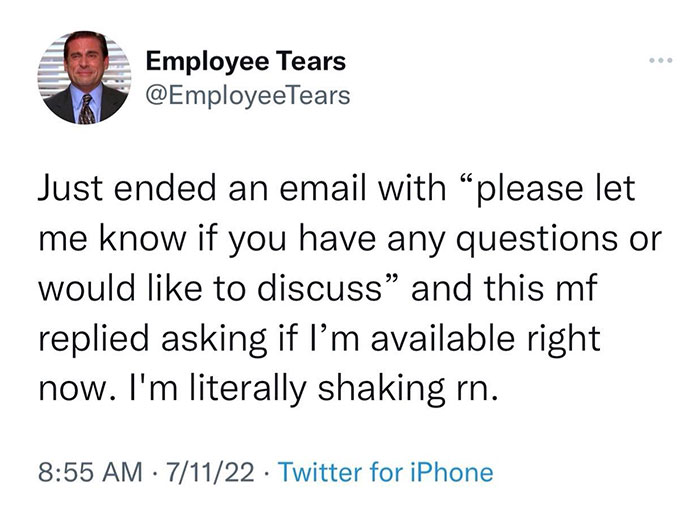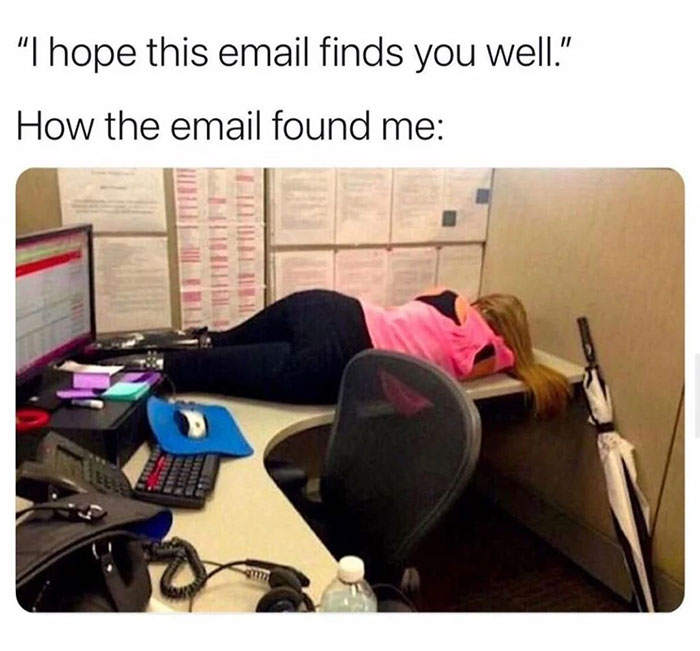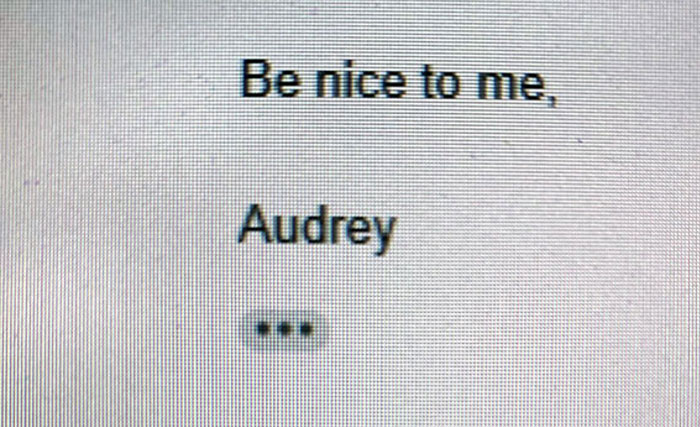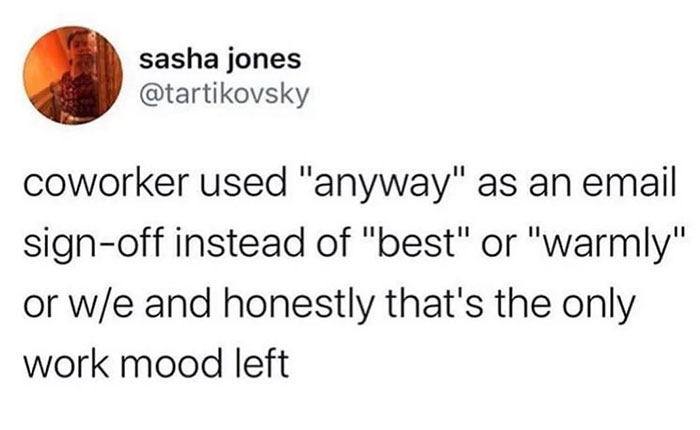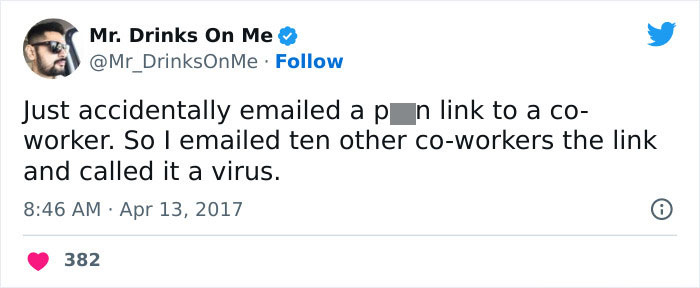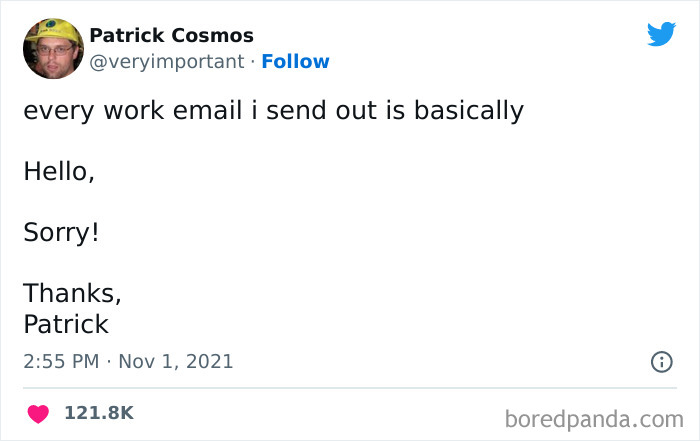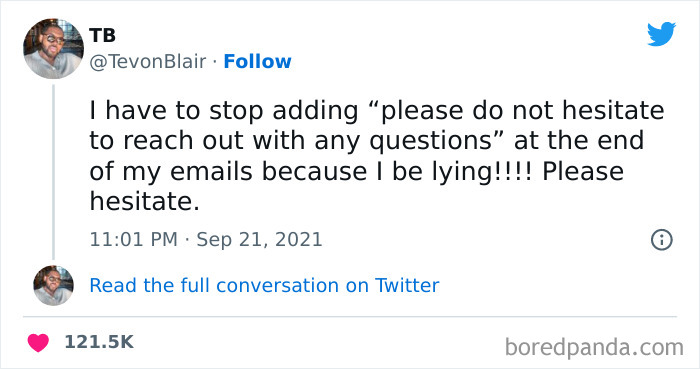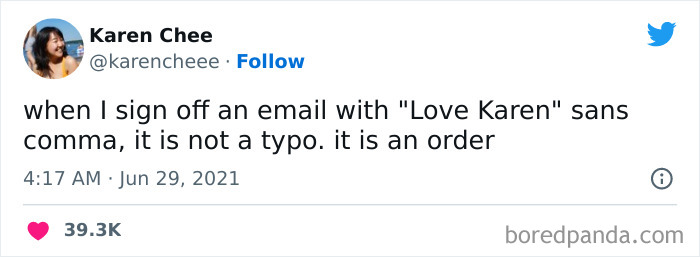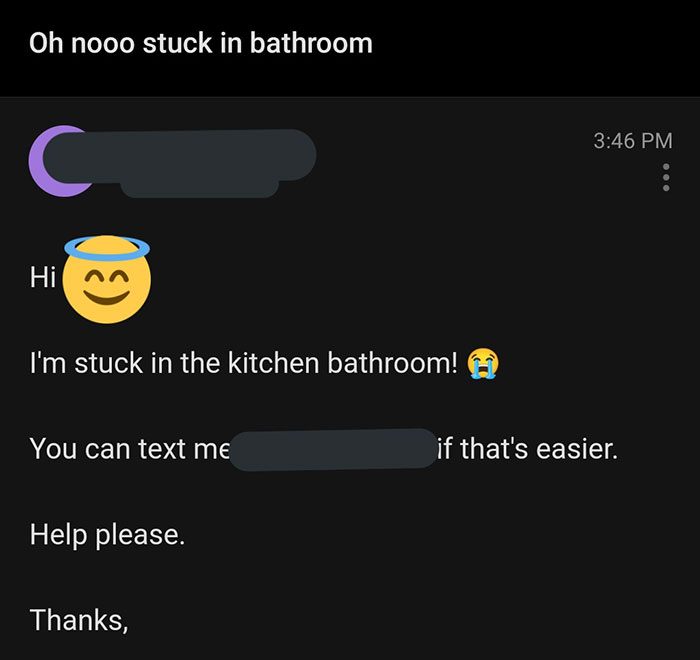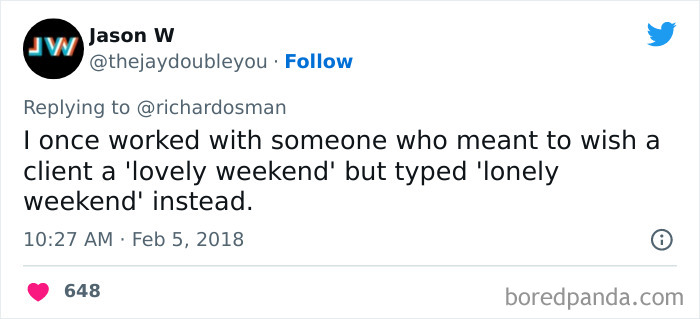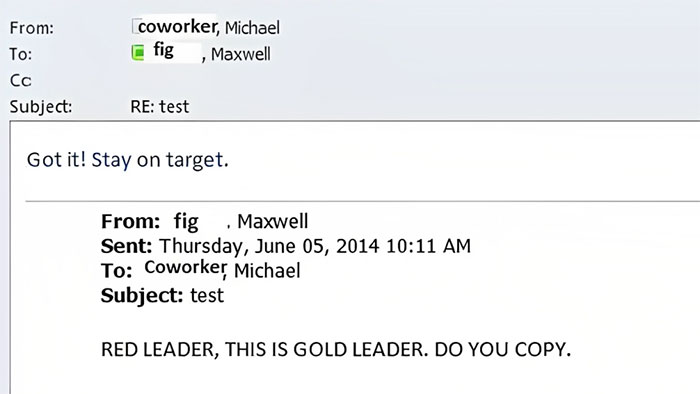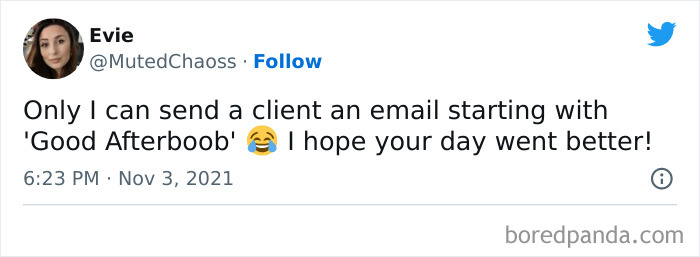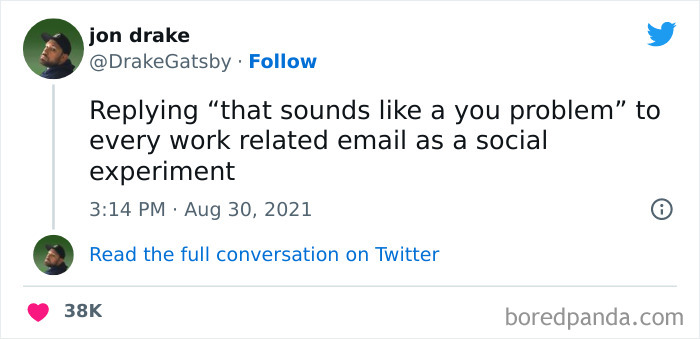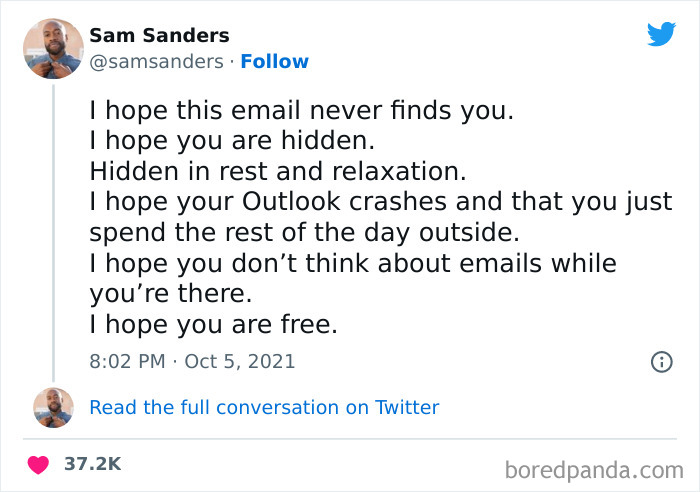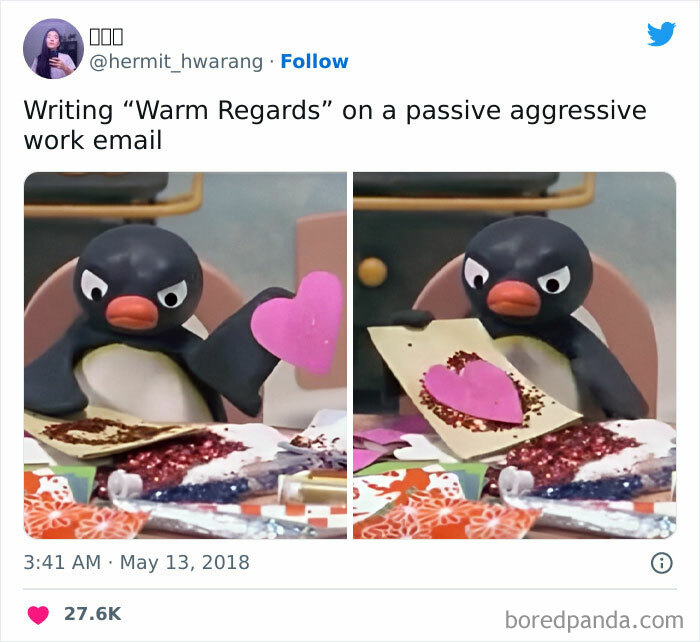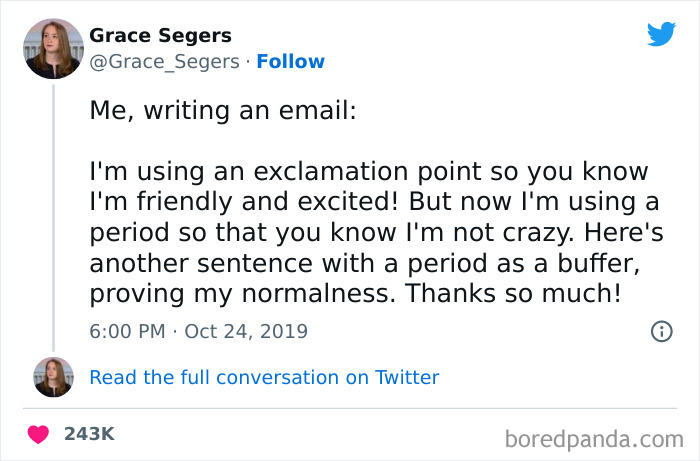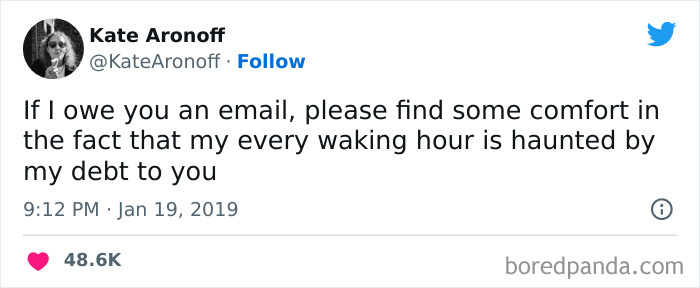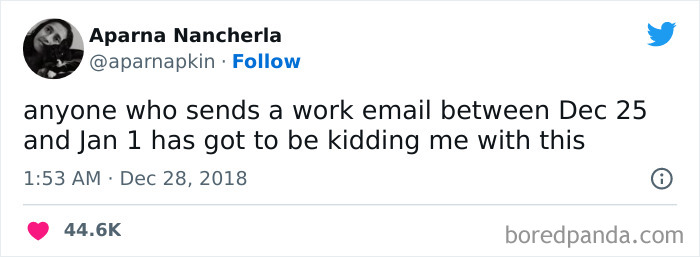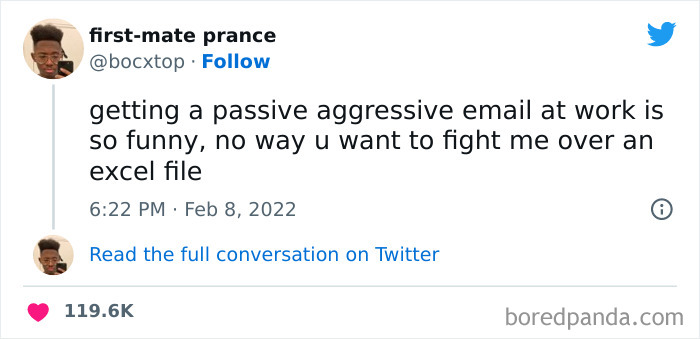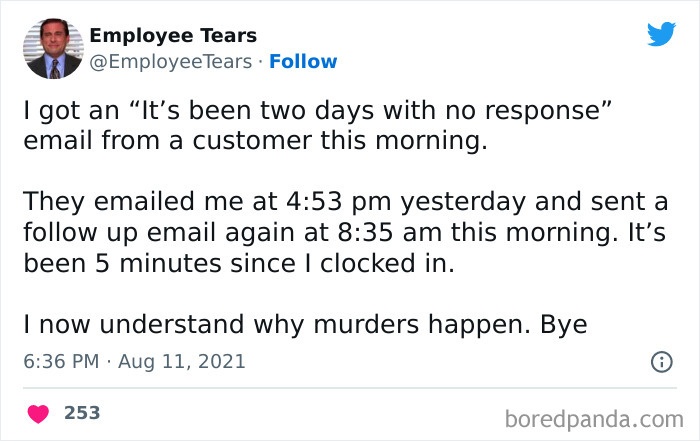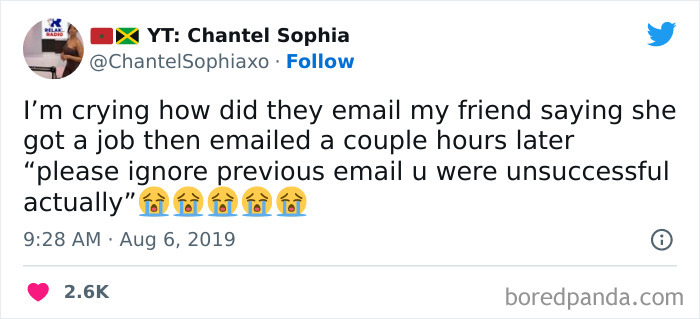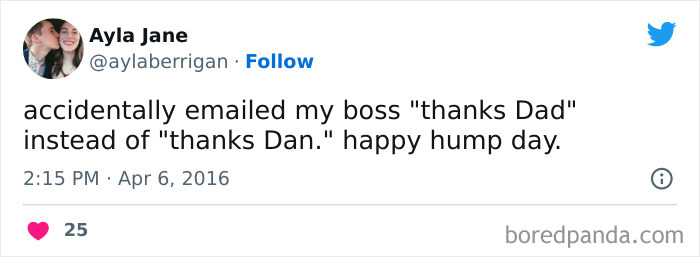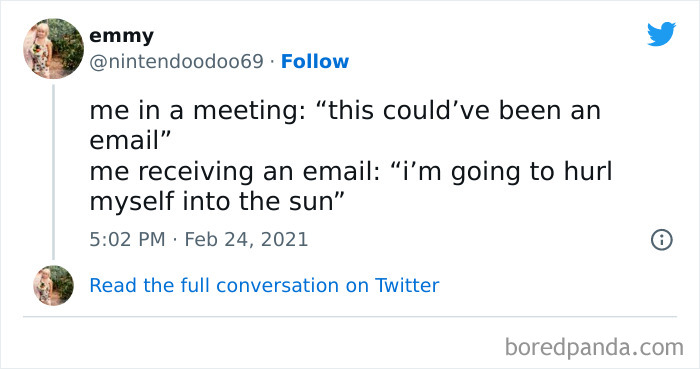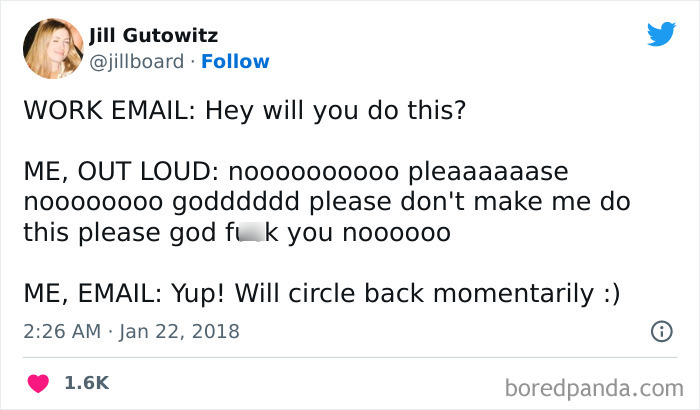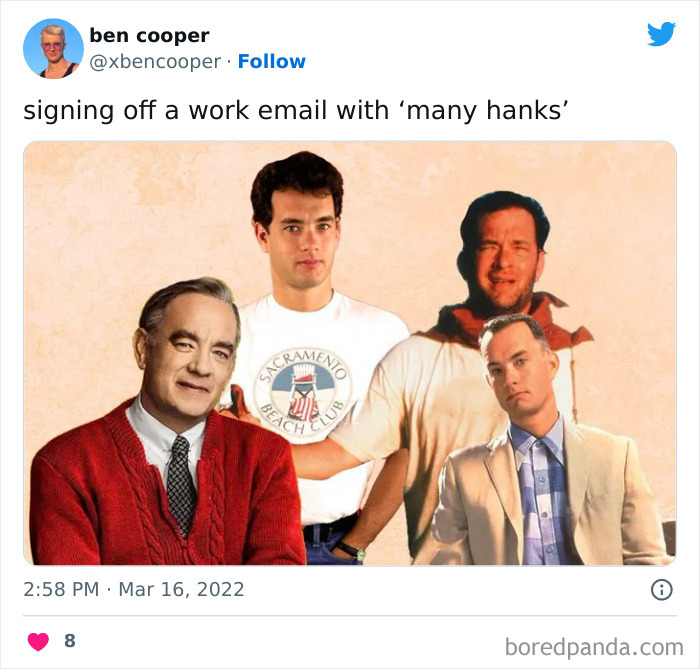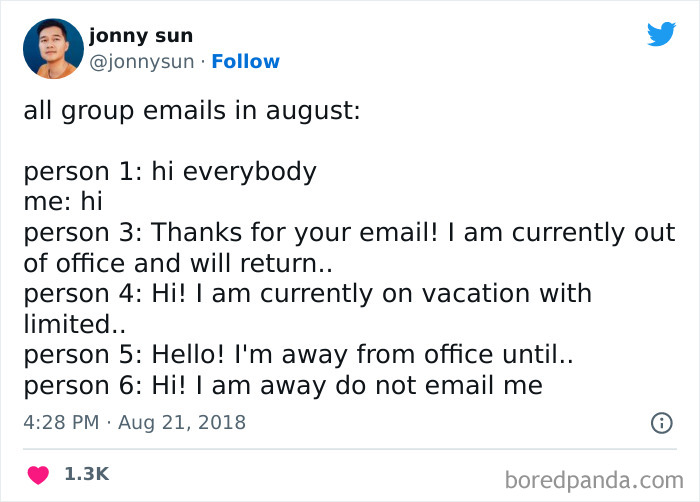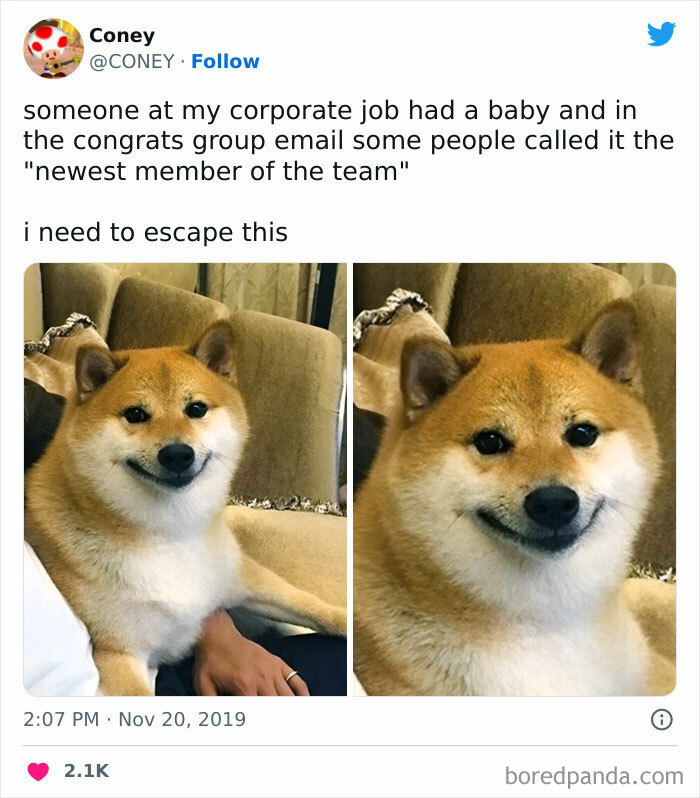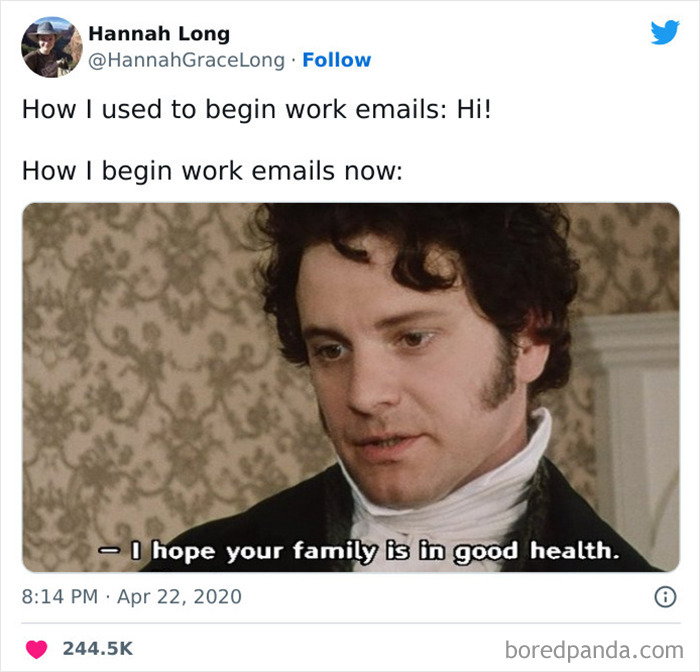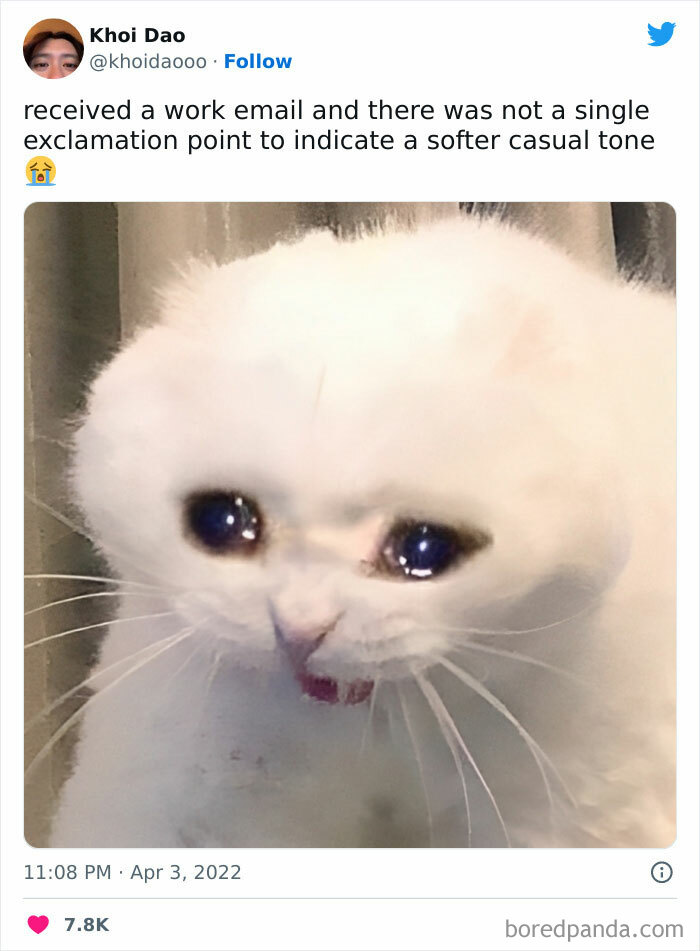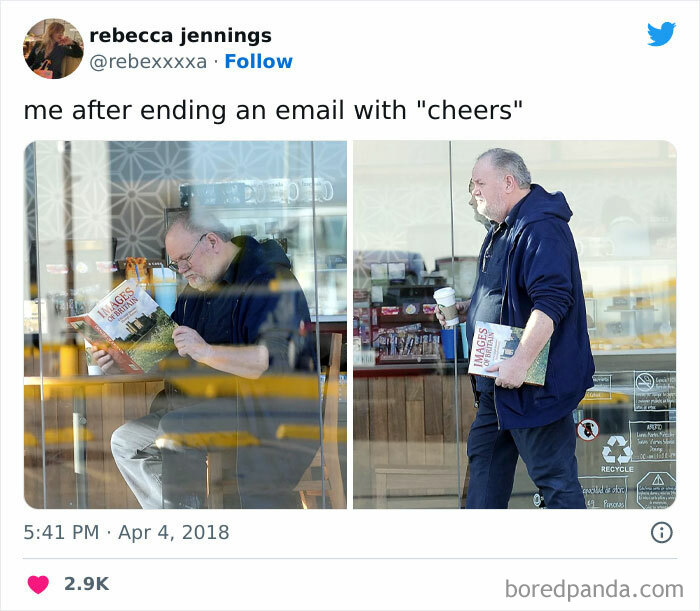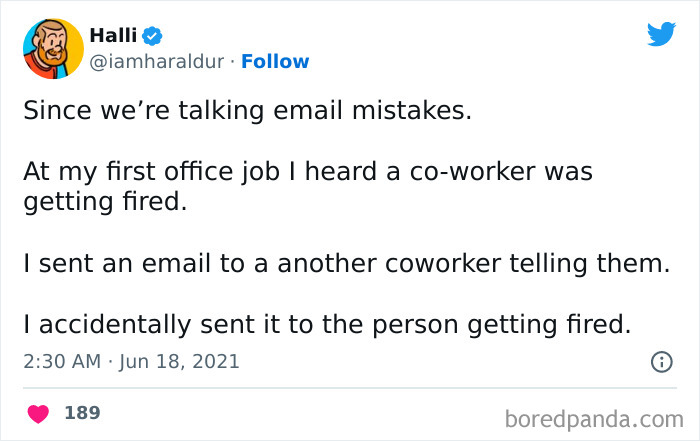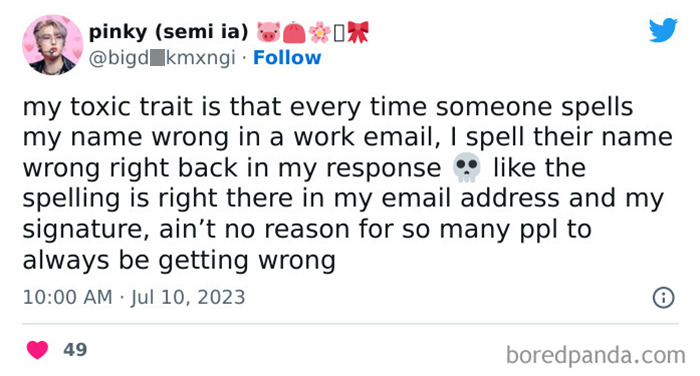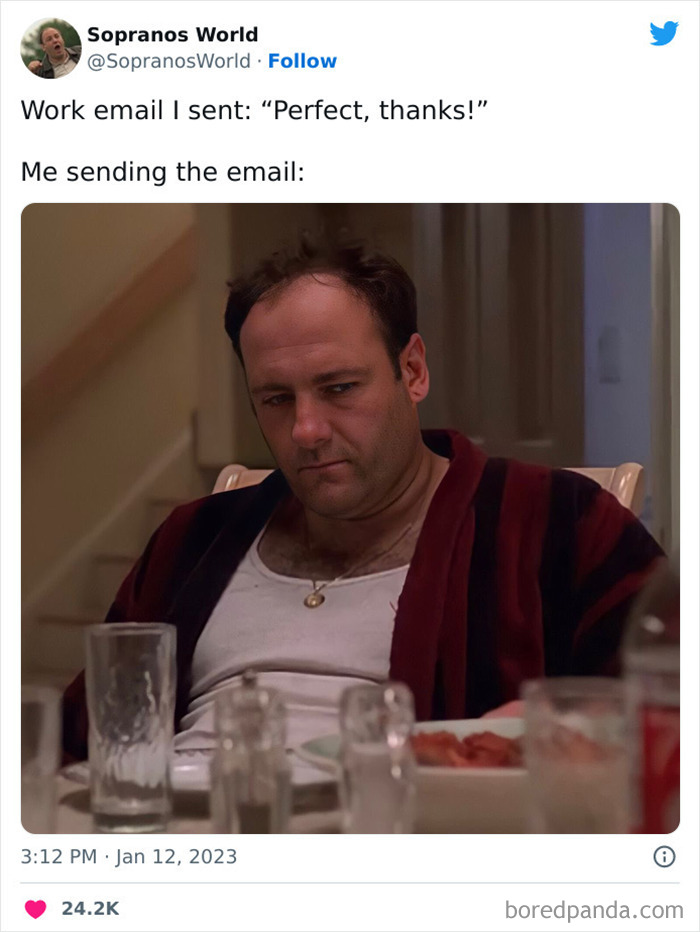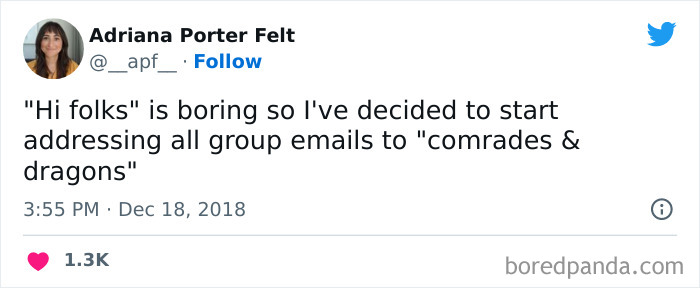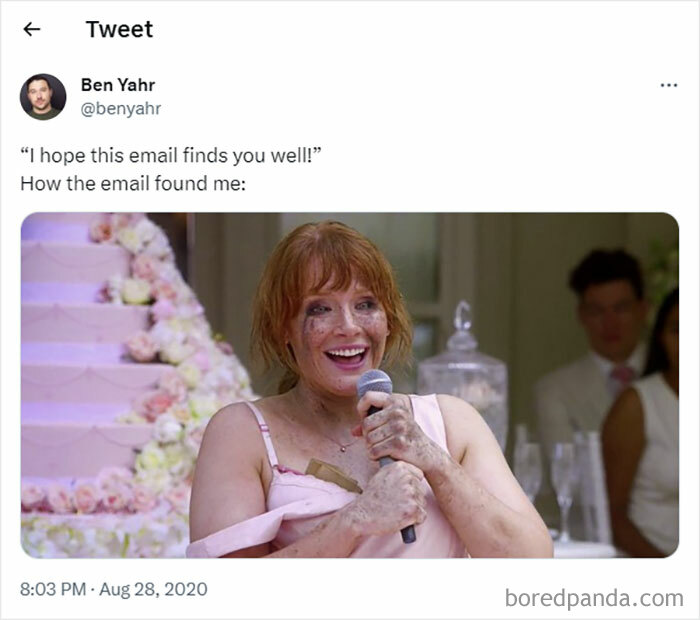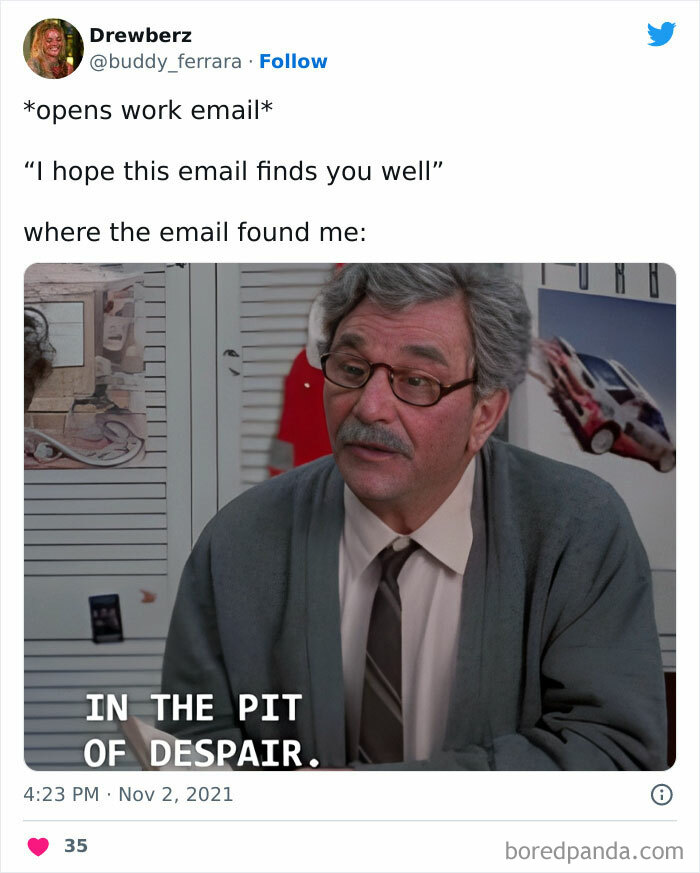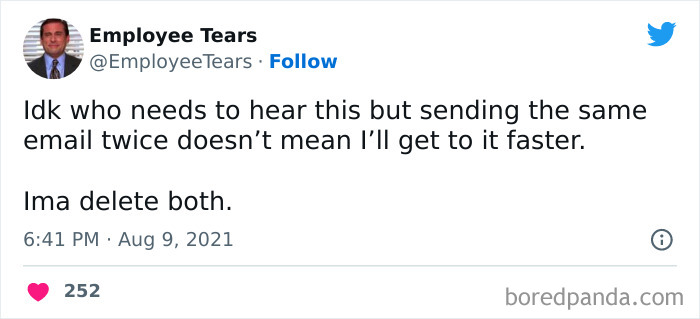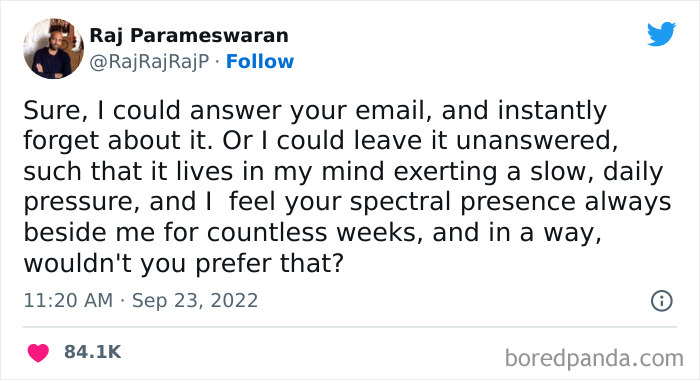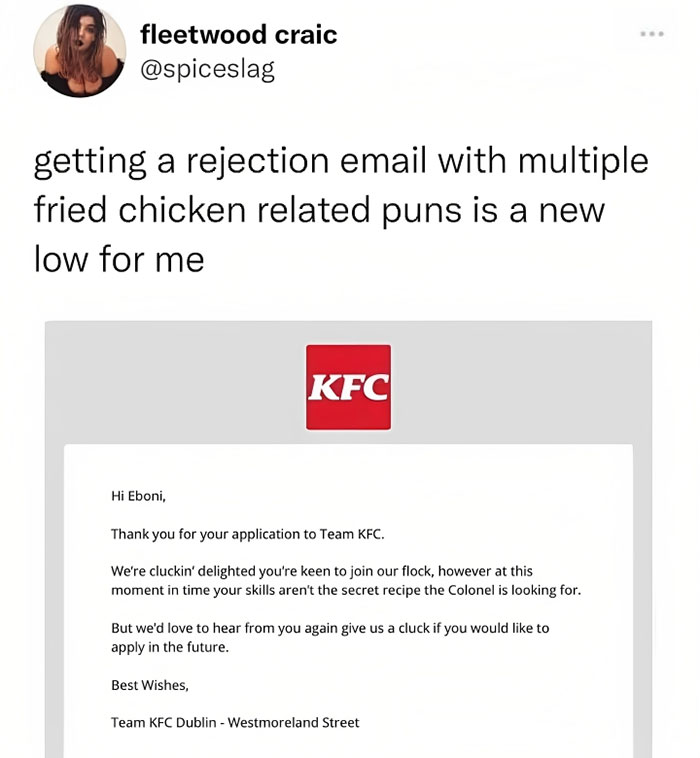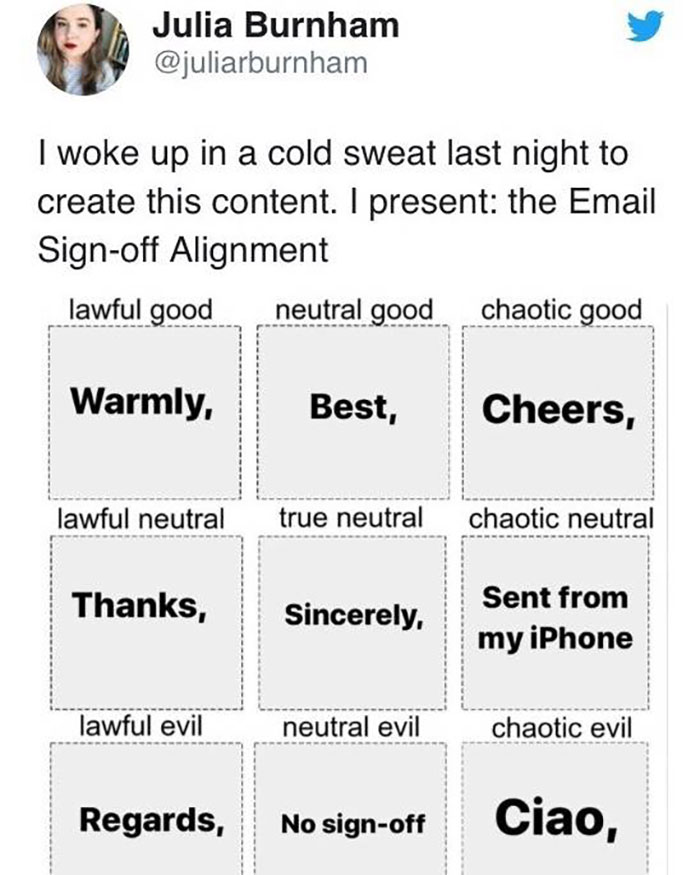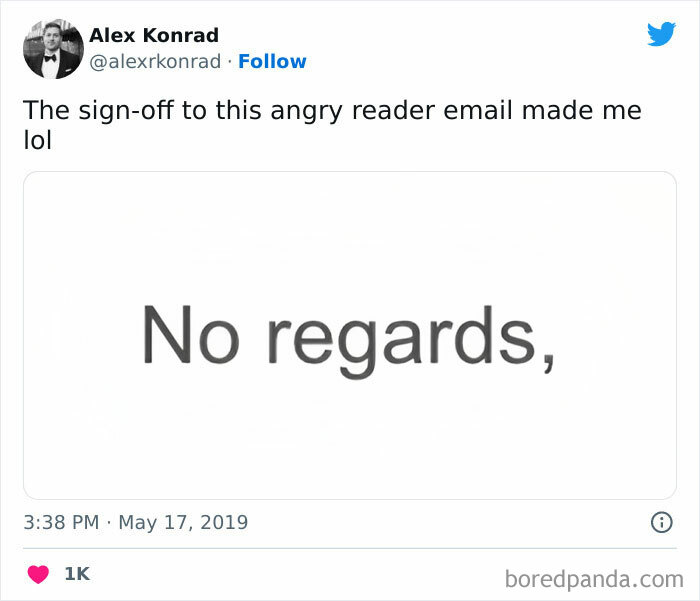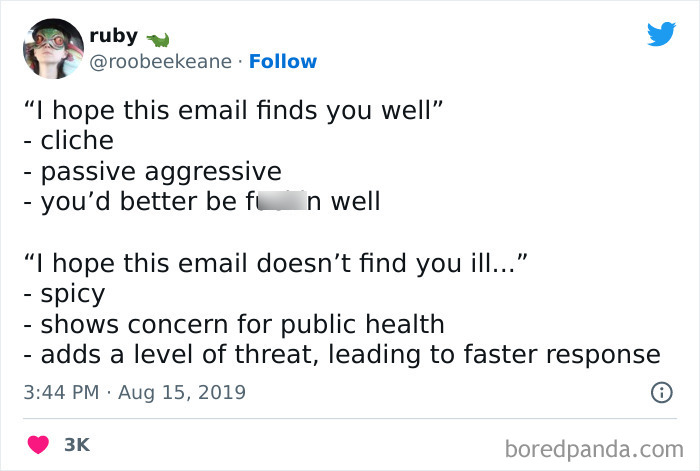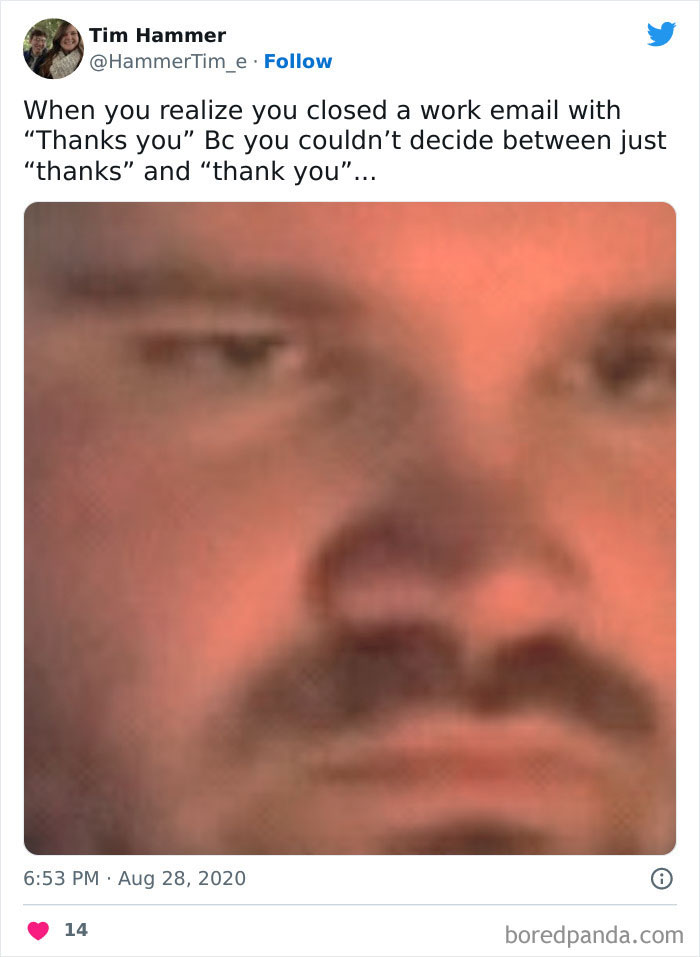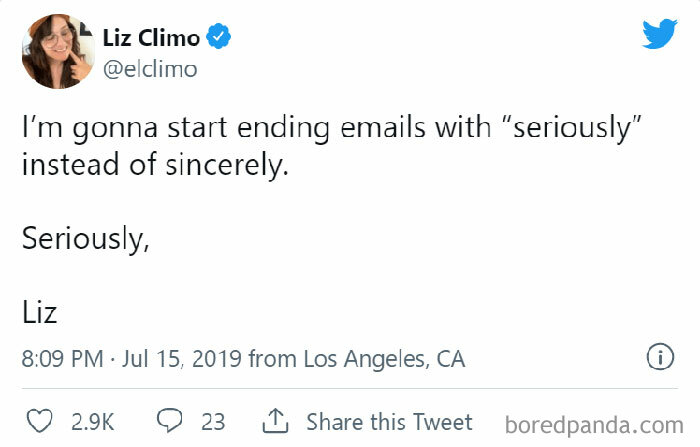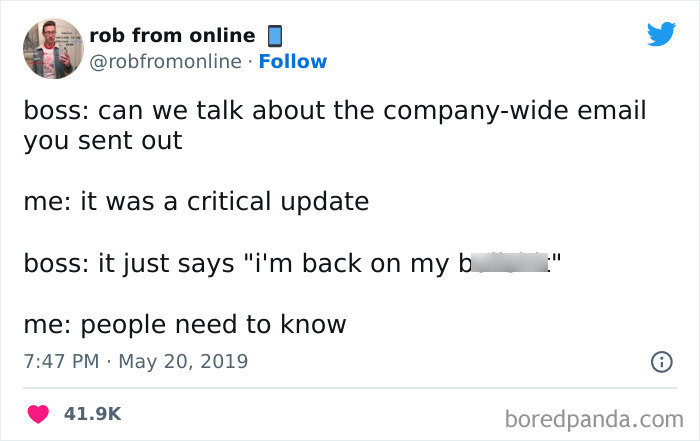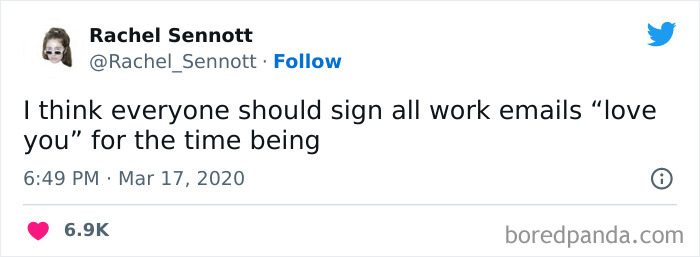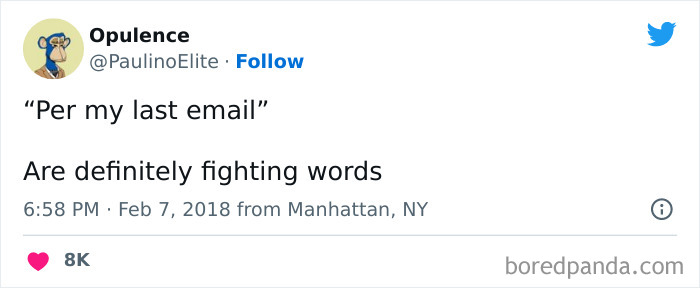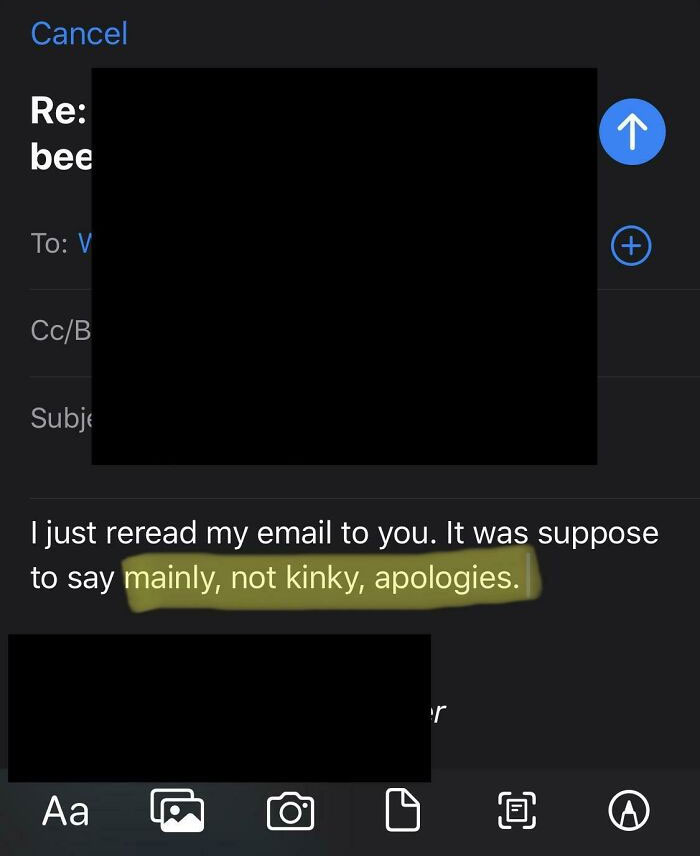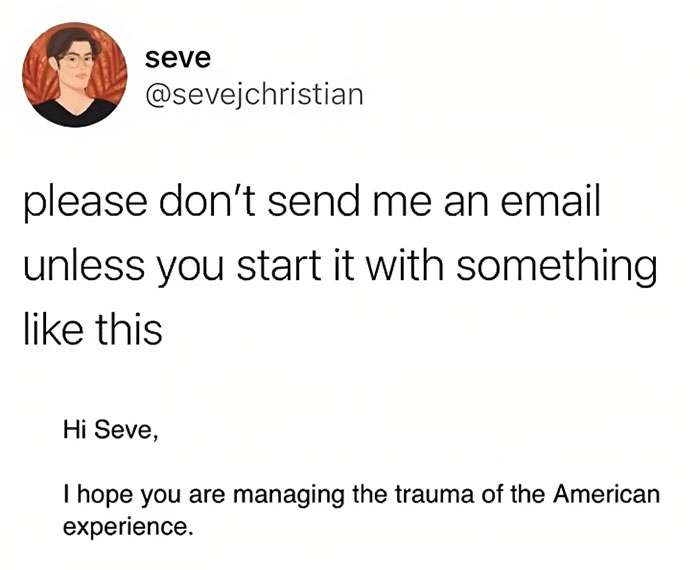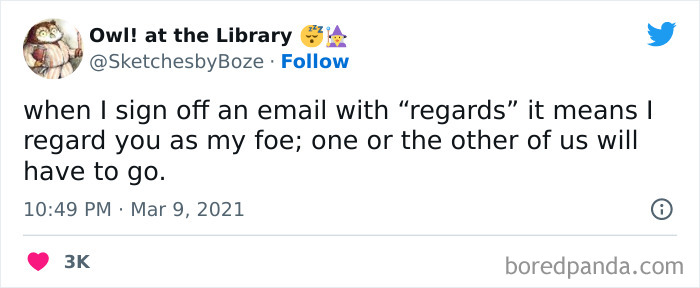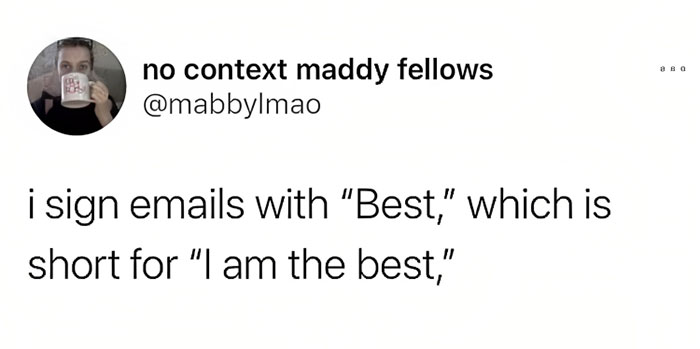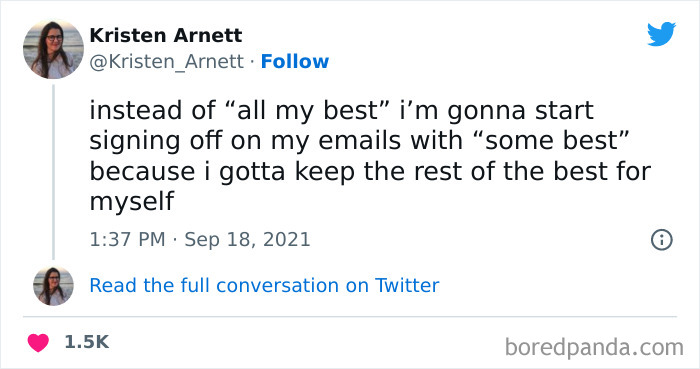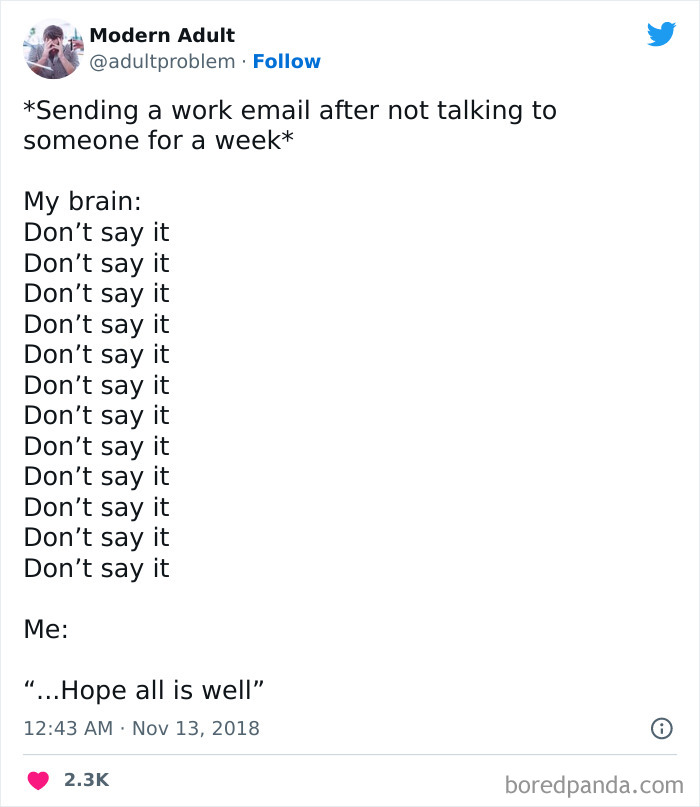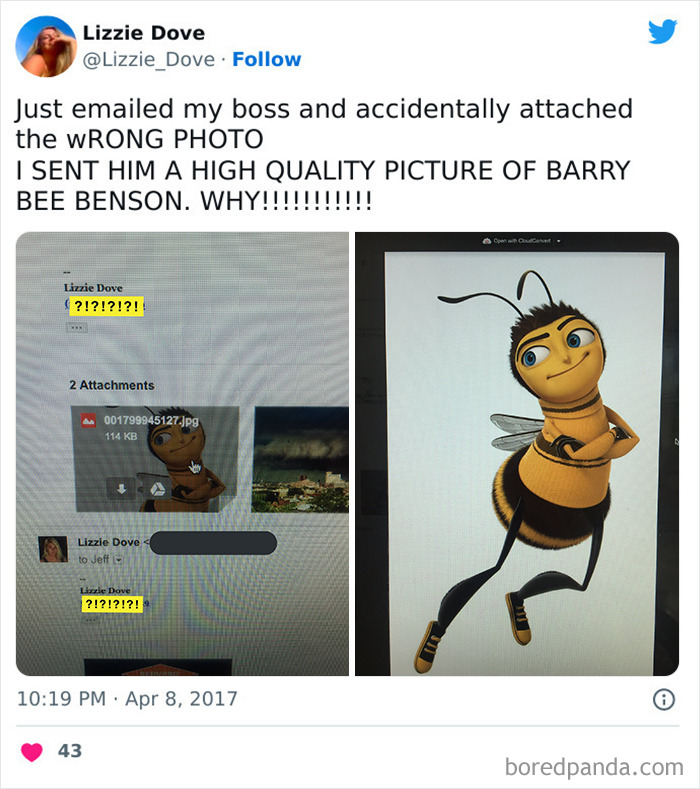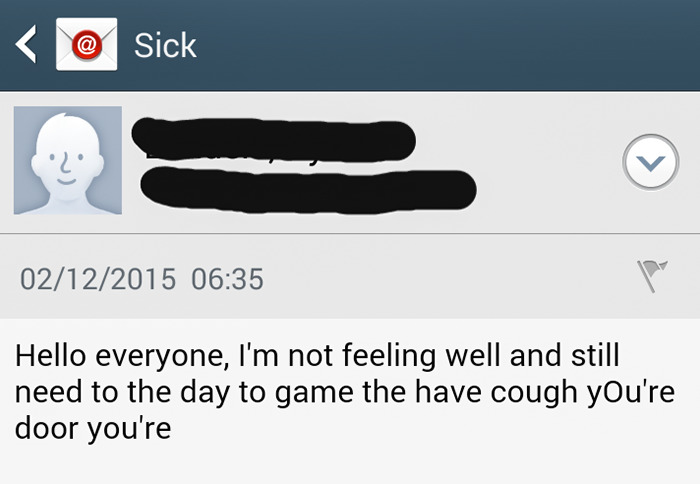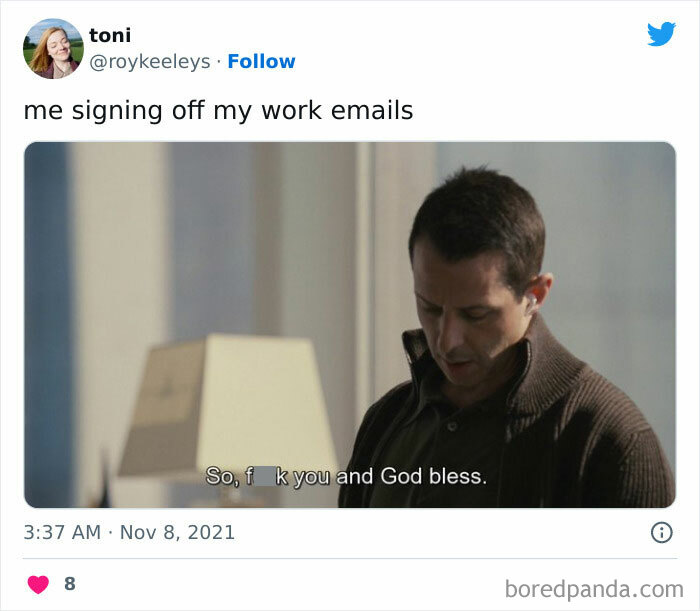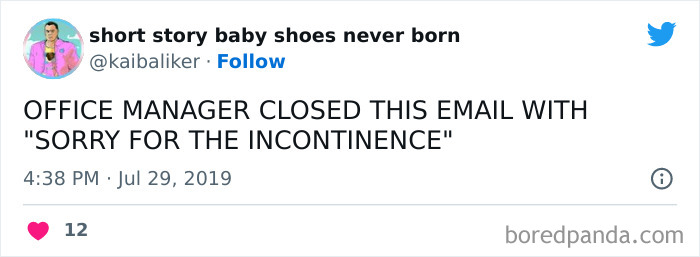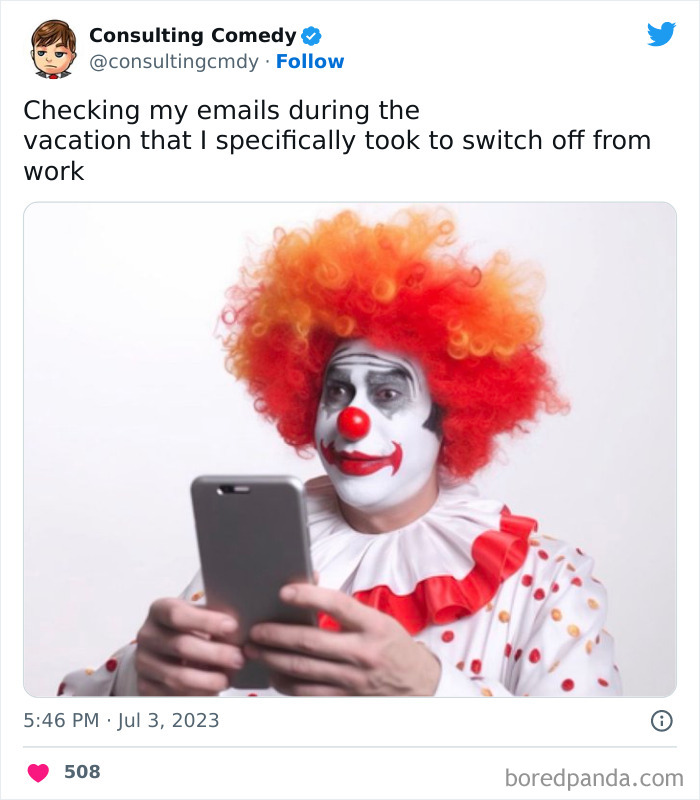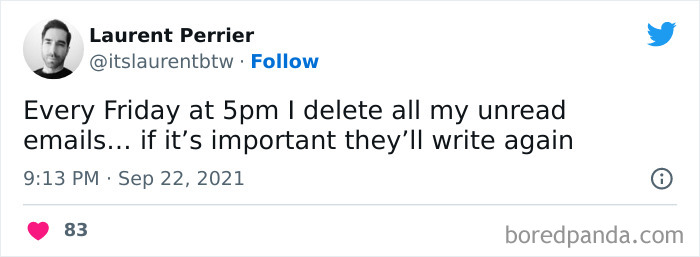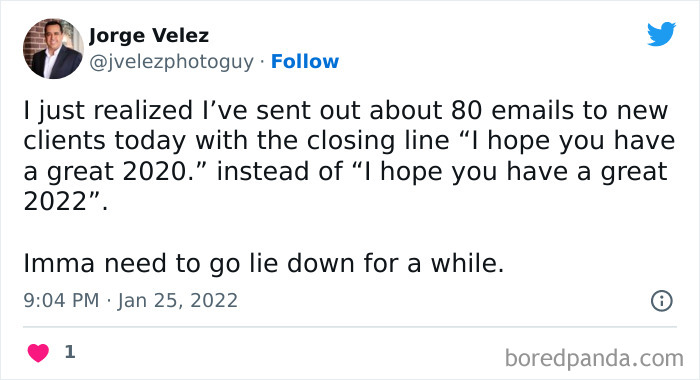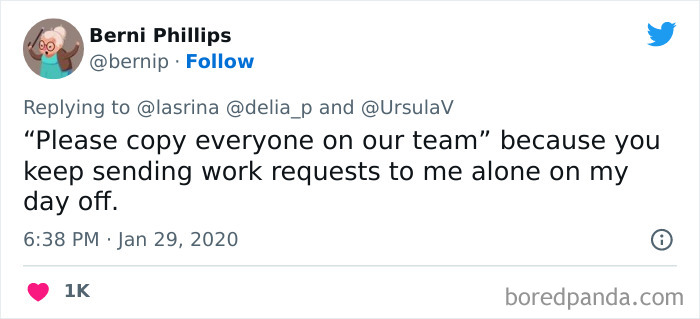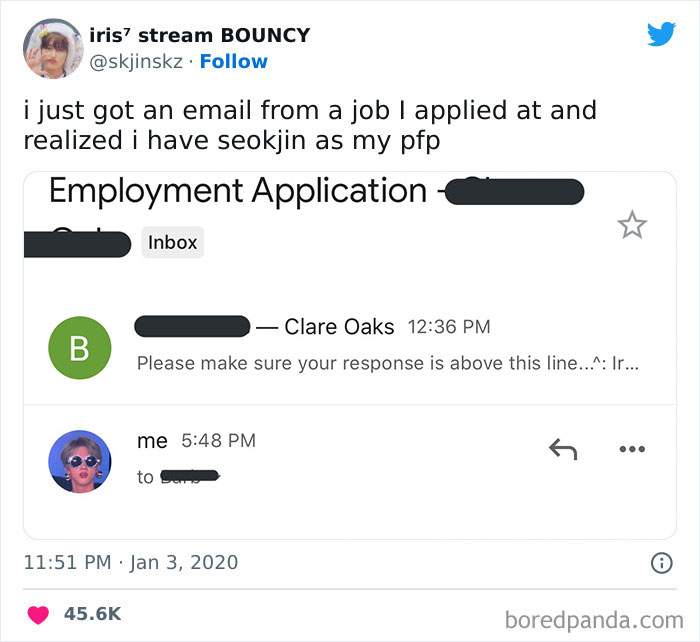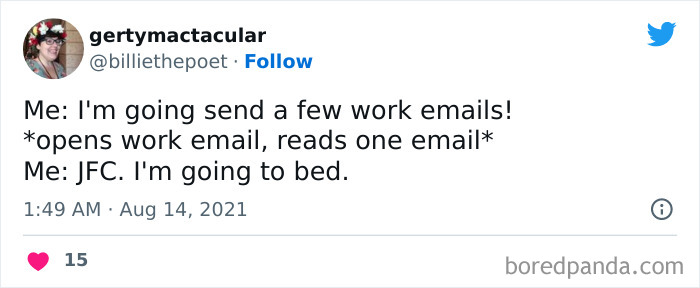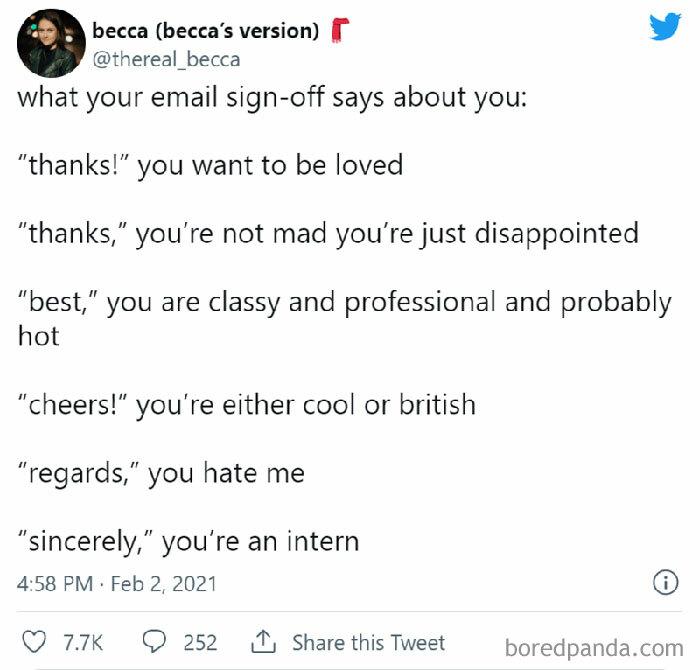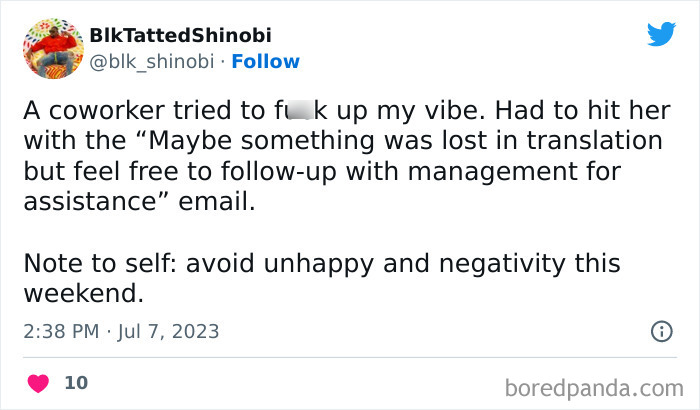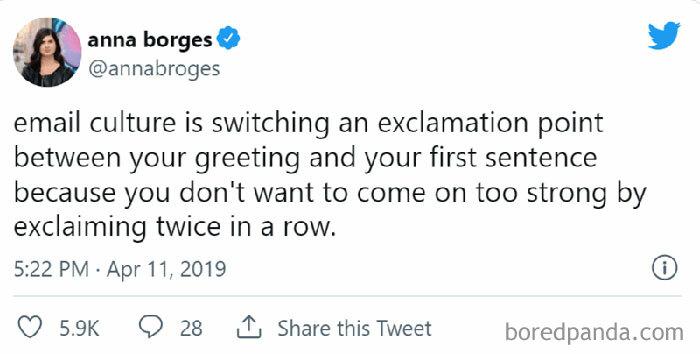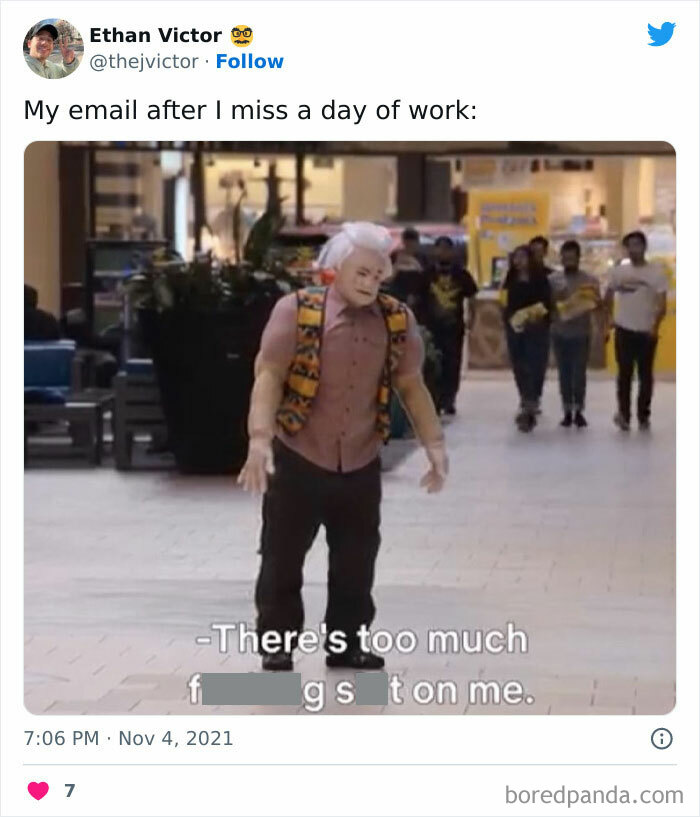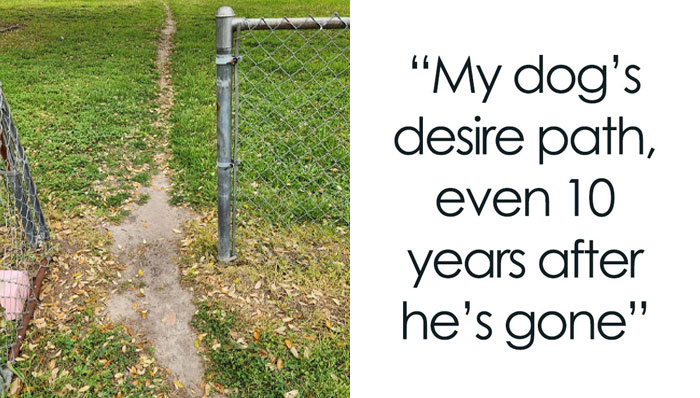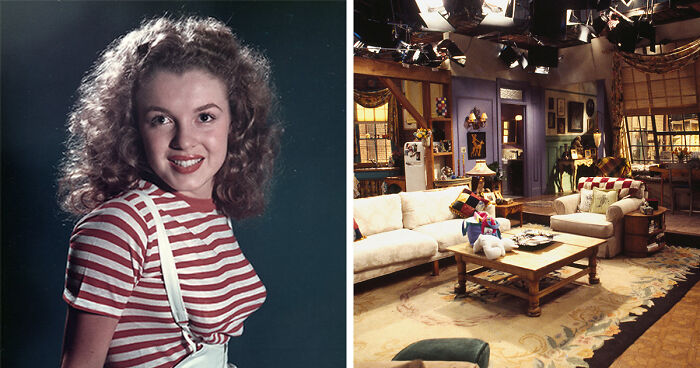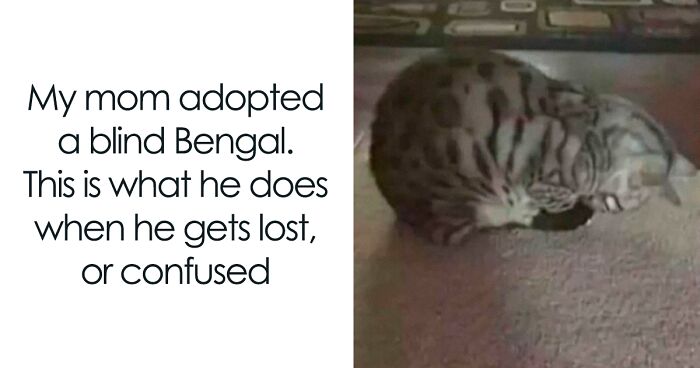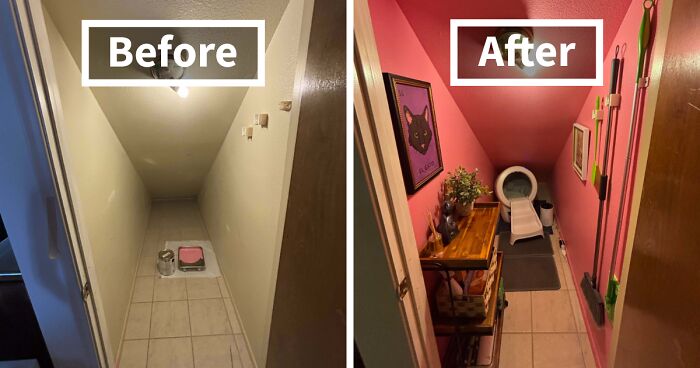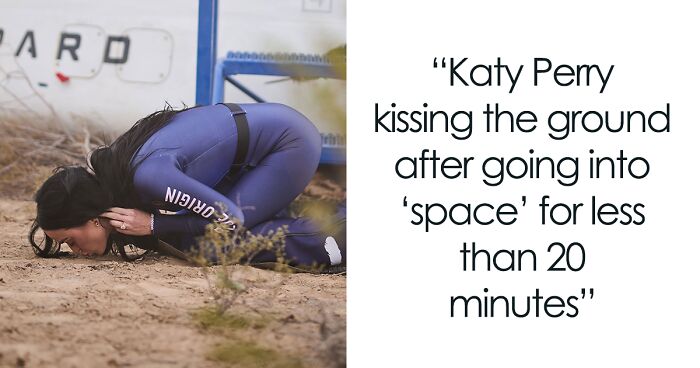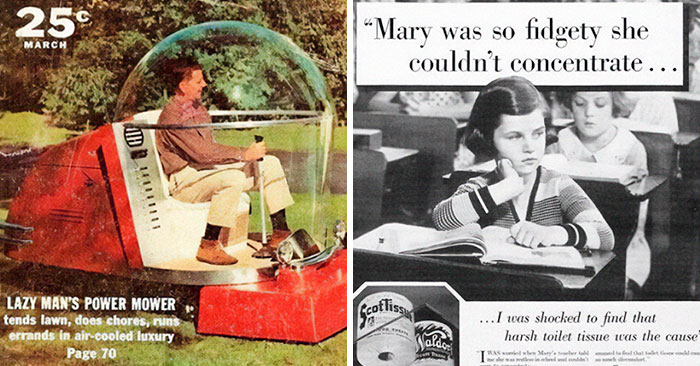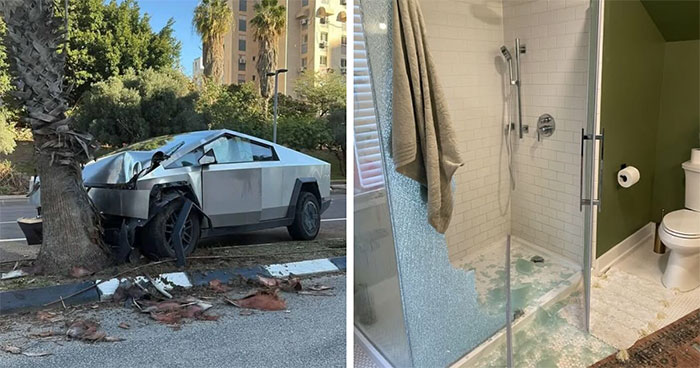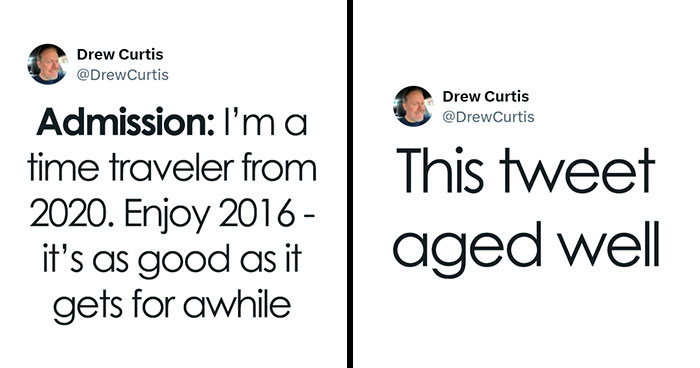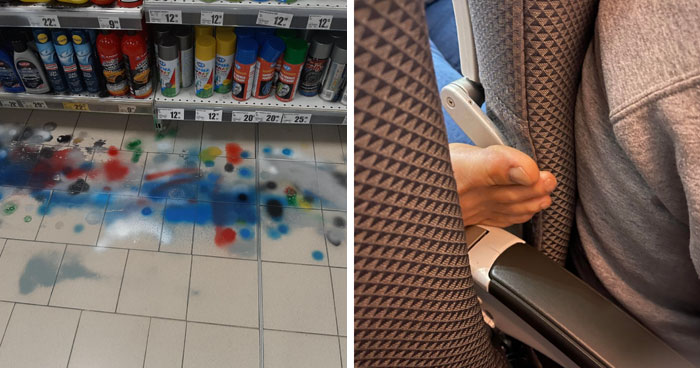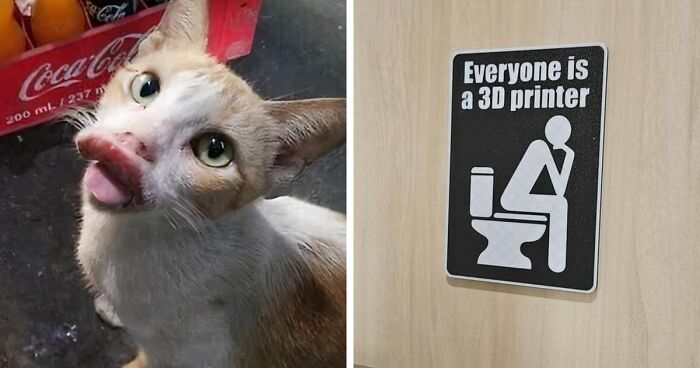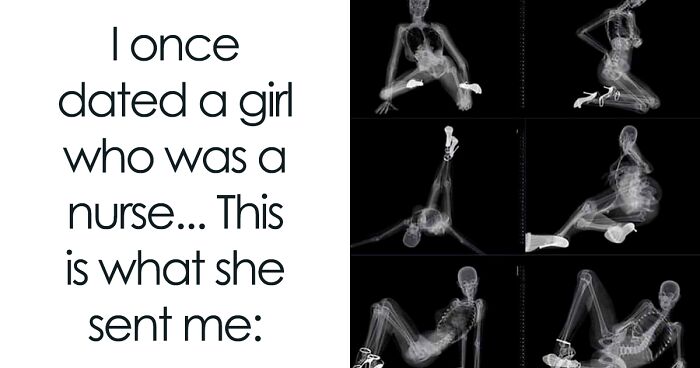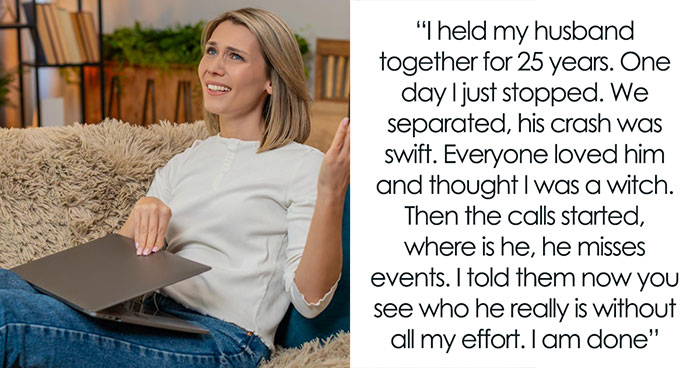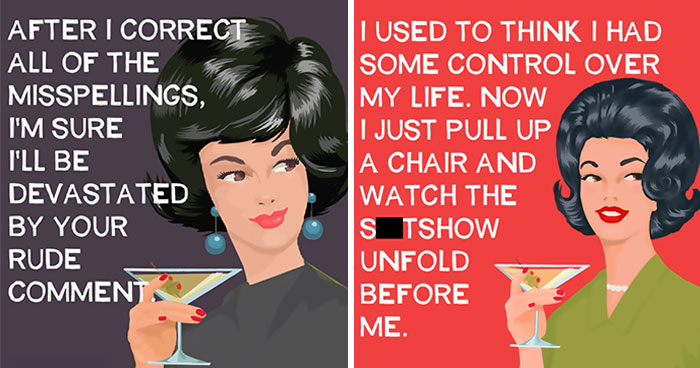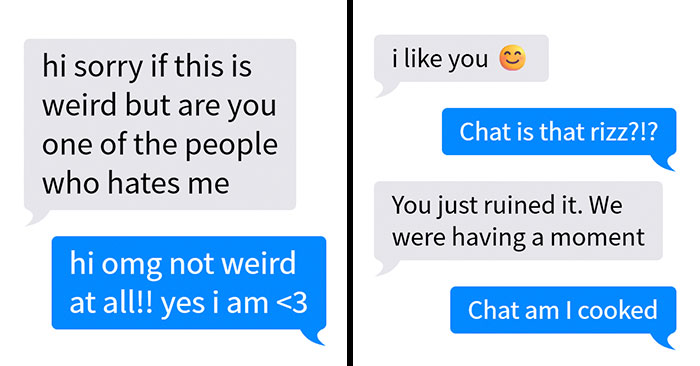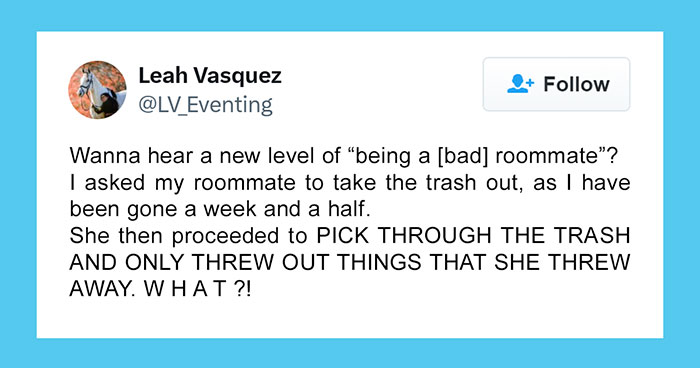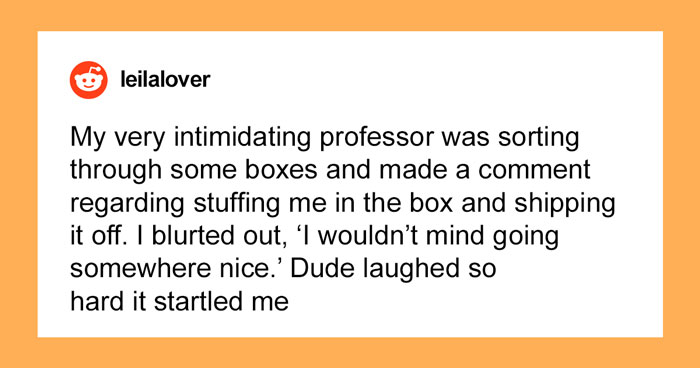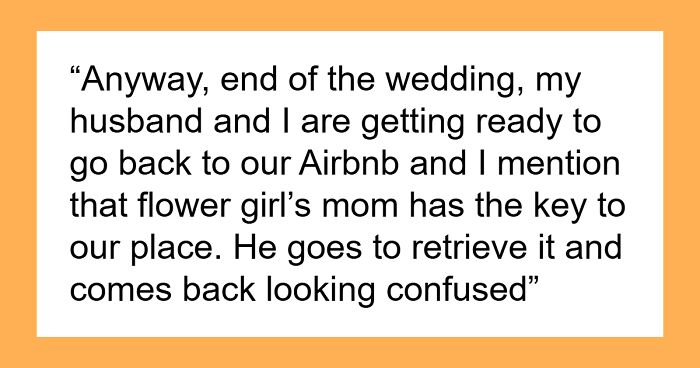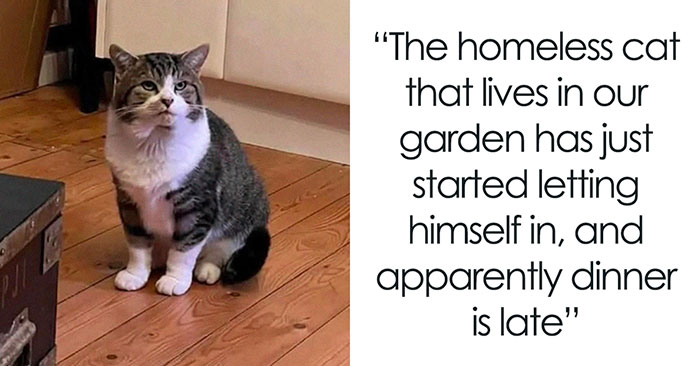Workplace etiquette is very important. Good manners and politeness is what allows people to create harmonious office environments which are crucial to the well-being of employees. Respectful greetings and small talk is the glue that turns an array of different people with wildly different backgrounds and work styles into a cohesive team.
Now that a lot of workplace communication happens online, the need for courteous exchanges also extends to emails and instant messages. Internet etiquette or netiquette is a set of common rules that you can’t veer off of because of how easily written words can be misinterpreted.
However, sometimes it’s very tempting to go off script and cuss out a boss who clearly doesn’t get your boundaries. Or simply leave out the emotionally taxing pleasantries and get to the point right off the bat. Why are we in such a desperate need to start each exchange with “I hope this email finds you well”?
If that’s how you feel, the collection of posts below will make you feel seen. The list consists of netiquette fatigue as well as accidents including wrong attachments, unfortunate typos, and email avoidance. Prepare to relate and dive in.
This post may include affiliate links.
As He Should
So why is netiquette so tricky? It’s partly because the online communication channels and approaches to them are always changing. For example, a few years back, adding a GIF to an instant message or an email was common and signified a sort of casualness of the conversation. These days, GIFs are considered to be outdated. Ryan Broderick, and internet culture writer told The Guardian that these days GIFs are “basically the cringe reaction image your millennial boss uses in Slack. Rather than what they used to be, which was a decentralised image type for communicating on blogs and message boards.”
The everchanging nature of internet communication rules became even more obvious during the lockdown, when the online exchanges were, arguably, at the all-time high. When Zoom entered the scene, many people were arguing what’s more appropriate: turning on your camera or keeping it off? And if you do turn it on, do you use a background, blur your surroundings, or reveal your interior design choices to your co-workers? Should you or should you not use a beauty filter? There was no consensus there, we had to make those decisions on our own.
I'm Celebrating 10 Years Of This As My Email Signature At Work. To Date, Not One Person Has Noticed
Europeans Work To Live, And Americans Live To Work
When making such decisions about what’s appropriate, we tend to follow vague concepts we have learned over the years. In a paper published in 2023, the researchers found that it’s either things we have learned through personal experience of online correspondence or by observing what other people consider appropriate. That is to say, that there are usually no hard rules about what is acceptable and what’s not.
We do have some written online communication rules, of course. Most of them are actually related to emails. A quick search online will inform you about most important do’s and don’ts one has to abide by. Do write informative subject lines, but don’t overshare in your Out of Office message. Do format your messages correctly, don’t use all caps or stylize your email with bold and italics too much. Don’t forward spam or chain emails. Don’t email people about urgent matters—call or message them instead. And, for the love of all that is holy, do not click “Reply all” when responding to company-wide announcements, we don’t need to know how you feel about them.
I Wish I Had The Courage To Do That
Better Later Than Never
In My Defense R, And T Are Quite Close
Then there are, of course, unwritten rules that depend on your workplace and co-workers. What’s considered an email at one job can be a lengthy Teams message at another. One employer might be very liberal about emoji usage while another might consider them inappropriate and unprofessional. One employer might be adamant about keeping your camera on during meetings, while another is more lenient and allows people to keep it off at all times. What’s even more baffling, is that this can differ from person to person, all in the same company, making juggling these rules quite a feat for the employees.
Me Most Of The Days
Odd Ways To End An Email
Tag, You're It
That's perfect! You can also use 'up yours' for the more personal/professional emails.
Rules related to politeness, however, can make exchanges feel too sanitized. For example, many rulebooks tell people to avoid exclamation points as much as possible. Still, people love using them. It’s often the go-to for people who wish to convey positive enthusiasm while still refraining from using emojis. In a similar vein, the above-mentioned study also referred to a time when an employee witnessed their boss swearing during a Zoom call. And while for some this might show an awful lack of self-containment, the employee loved it as it made them feel more at ease with their boss.
HR At My Work Was Sending Emails To A Different Andrew In Australia For Over A Year. This Is His Response
I googled "drop bear". Can't stop giggling. It's the Australian version of the Monty Python's rabbit of Caerbannog.
Unhinged Email Sign-Offs Until My Boss Notices
So Crazy
My favourite to use is 'Oh, so sorry, it's still in my drafts folder and I didn't notice'
People also love getting less clean-cut emails because they can be more personal. Starting an exchange by asking your colleague how their vacation was or congratulating them on a big achievement can make them feel appreciated. Seeing your colleague’s pet or children, something that in a neatly organized work environment is not possible, can also help you relate to them and make you feel more connected.
Because You Spent Saturday And Sunday Thinking About That Email
Same
We Got A Snowstorm Last Night. My (Female) Boss's Email Probably Shocked A Few People In Our Office
These contradictions and obvious gaps prompted scientists to dig into the topic. The researchers of the aforementioned study suggest that netiquette should be regarded as separate from in-person etiquette. In fact, according to them, thinking that it’s the same thing just online is what got us here, where internet communication is playing catch-up with the fast-paced online landscape. They say there should not be any do’s and don’ts as it is all dependent on the situation and the context.
Professional Work Email
Learn Something New Every Day
I Like This Way Better Than "I Hope This Email Finds You Well." This Sender Can Read The Room And Knows No One Is Being Found Well These Days
So, put those exclamation points wherever you want. Use an emoji here and there and attach a meme when needed. Talk to your boss about making a picture of Nicolas Cage your official signature—you never know what they might say. In other words, as long as you’re kind and polite, be your best online self that you can be.
I Was Just Going To Carry On Applying For Jobs With Chilli Beef Recipes
Relatable
This Is So True
Free Like A Bird
Fair Enough
My husband uses “Regards”. I asked him why. He said he prefers it to “Sincerely” because that sounds like you’re trying to justify yourself as being honest. (My husband is the most honest man I know, who has an excellent reputation to uphold, so would never cheat anyone. Ever.) “Regards” sounds professional, but people will never know if it means high regards or low regards.
No One Will Notice
I Felt This
Company-Wide Emails Like This Usually Apply More To Some Than They Do To Others
“Whenever I'm about to do something, I think, "Would an idiot do that?" And if they would, I do not do that thing.” — Dwight Schrute
Accurate
It's Monday And You Know What That Means
It's Almost Usable
Still working here because I have to pay bills, StitchIsCuteAndFluffy
I Literally Giggled About This All Day
I Wanted To Hurl Myself Into The Sun
Blame auto correct. Then include another example, preferably mentioning the new company policy requiring drop bears to be fed regularly in the parking garage... blame auto correct for that one in the same email, but avoid explaining what the original message could have possibly been.
Omg If I Were The Recipient I'd Be So Stoked. Would Show All My Friends And Make Them Jealous
Gotta Be The Second One. Do It For The People Who Are Not Paying Attention To What Is In The Middle
My Friend Sent This Email To His CEO And All Employees Using A Fake Account. "No One Should Have To Poop In Fear"
Unique Work Email Sign-Off
The Passive-Aggressive Smiley Gets Them Every Time
I had an email the other day that got my blood boiling. Being at home, I resisted the urge to reply immediately (which would not have been received well) and power washed the driveway to release my frustrations. That made all the difference because whilst I was outside, a second email arrived from the same source that dealt with the issue and I didn't need to answer after all.
As A Precaution, I Leave The Building After Every Email
My Husband Calls That Person My Representative
Same. I read my old clinic notes and wonder how the heck I wrote that.
Being A Millennial And Having To Deal With Work Emails
Apologizing For Your Own Existence Is Generally Just The Polite Thing To Do
I Don't Know Why Am I This Way
The Worst
A previous post suggests you leave the building immediately!!! Go!!!
It's A Matter Of Perspective
Maybe she's just trying to read the stuff in the bottom corner of her papers. :P
This Is How I Effectively Sign-Off Emails Now
Passive-Aggressive Sign-Off
Quick Thinking
Those Exclamation Marks Are Key
So True
This Is Genius
I Sent This Email To My Coworker On My Second Day Of Work
your 2nd day of work? does that mean you got stuck on your 1st day and spent the night?
Lonely Weekend
How I Confirm New Employee's Email Is Working
Unfortunate Mistype
No Updates Yet
What A Lovely Poetry
"I hope to see my friend and shake his hand. I hope the Pacific is as blue as it has been in my dreams. I hope."
Use Simply "Regards" To Convey Your Incandescent Rage
My Spin Instructor Sent Me An Instagram Post Of My Tweet. I've Finally Made It
If They Really Need It, They'll Ask Again
Then by the time I get over it, it’s too awkward to reply anyway, so I just delete it.
And No Meeting Invites. That's Just Ridiculous
Put that in your automatic Out of Office reply, and add “Hey, I’m just saying what we’re all thinking.”
I Think Fighting One Coworker Every Couple Of Months, Would Solve A Lot Of Problems
This Email Did Not Find Me Well
14.5 hours, which include my off hours and all of overnight, does not constitute two entire days in anyone’s bubble. I like how people are now only counting up the minutes they were on the clock to show exactly how long it’s been. For this person, it’s only been 12 minutes; 7 from yesterday plus 5 from today, not two days. No way.
Rollercoaster Of Emotions
I would "never receive" the second email. Say it to my face when I call about my start date. 50/50 chance they won't have the balls
My Biggest Work Email Fail
This Is The Mood
This Is Why I Love Working Remotely
Only I can never achieve a perfect circle, so will probably miss you on several rounds, until you finally get tired of waiting and find someone else who can do a perfect circle. (That’s a relief, because I didn’t want to do it in the first place, but had to act like I was eager to jump in and help.)
Eeek
You Can Never Have Too Many Hanks
Working With People In Europe. What Is A Vacation Again?
Get The Baby A Little Suit And Put Them In Reception
The Right Way Of Starting An Email
Normalize Tone Indicators In Work/Professional Environments
Is "Cheers" A Very British Thing To Say In An Email?
I've Accidentally Sent An Email To The Wrong Person
Dealing With Work Emails
Work Email
And Each Will Wonder Which One They Are
I start all my emails to my line manager with "Hail, Dread Leader". Luckily she has a sense sense of humour! 🤭
Could Never Find Me
The Email Didn't Find Me Well At All
AKA My office/cubicle/desk (whatever a*****e came up with open office design can go f**k themself, btw).
Going To Ignore The Other Messages You Sent Telling Me About The Email
Well, as someone who sometimes suffers from “email attachment disorder”, I end up having to send two emails, because I forgot to attach what I was talking about in the first email to the first email. S**t happens, you know.
That's Why There Is An Archive Button. This Way, You Only Feel The Guilt Once, Then Forget About It
This Rejection Email
Email Sign-Offs
New Email Signature
I Hope This Email Doesn't Find You
Indecisiveness Bites Back
Or more like that double crossing rat bastard Spellcheck arbitrarily added the “s”, even though it’s not grammatically correct. It just did it again while I was writing this comment. MFer, a pox on you and your family.
Idea
It Finds Me Well, And Leaves Me Not
People Need To Know
Good Idea
Awww yeah. I like that idea. It would totally put a smile on my face
Fighting Words
Casual Email To My Boss
I'm Using This As My Intro Going Forward
This Is How It Feels Talking To People Who Actually Have Energy Without Wanting To Seem Rude Or Uninterested
It's Always Good To Have A Few Enemies To Keep You On Your Toes
And you will never know if I mean it as good regards or bad regards. Bwahahahaha!
More Like "I'm Trying My Best"
That Sounds Just Right
When It's More Of A Serious Email: "Trust All Is Well"
I've Accidentally Attached The Wrong Photo And Sent It To My Boss
I Emailed My Work Yesterday Morning To Let Them Know I Was Sick And Wouldn't Be Able To Work
This Inspirational Quote In The Signature Of An Email I Received At Work
This
She Just Came Up To Me And Goes "(Chief's Name) Just Told Me To Reread What I Sent Out. I Hate My Life"
A low key way of saying they just pissed down your back and are telling you it’s raining?
Checking My Emails During The Vacation
It Sounds Like He Needs A PR Team, A Manager, And An Assistant
I have worked at places where people got email forward crazy, and I was getting hundreds of emails that had nothing to do with me, but my email address just maybe happened to be included in the original email, or a mass emailing. I f*****g HATE Google for that s**t. It made for CONSTANT interruptions to see if it was important, and 999 times out of 1000, it was not. So, unless I could find any entry that had to do with me, or was of any importance at all (some would just be constant reiterations of “Congratulations!” or “Good Luck”, and be for employees I didn’t even know), I would just start bulk deleting them at the end of every day. Do NOT just jump on the Forward bandwagon, folks, unless you want to bug the s**t out of EVERYBODY, and not just the person you’re directly emailing. Send them a new email, addressed only to them, FFS!
Who Am I? Where Am I? When Am I? Why Am I?
Most Insufferable Work Gibberish Phrase
That's Why I Have At Least 2 Different Emails
Me Every Workday
Sign-Offs And Their Meaning
Dealing With My Coworker
I'm Not Alone
Lying in bed reading this, trying not to disturb my partner, but the bed is shaking because I’m laughing so much! 😂😂😂
Chaotic
97 unread emails this morning after having 1 day off. yup, livin' the dream.

 Dark Mode
Dark Mode 

 No fees, cancel anytime
No fees, cancel anytime 



